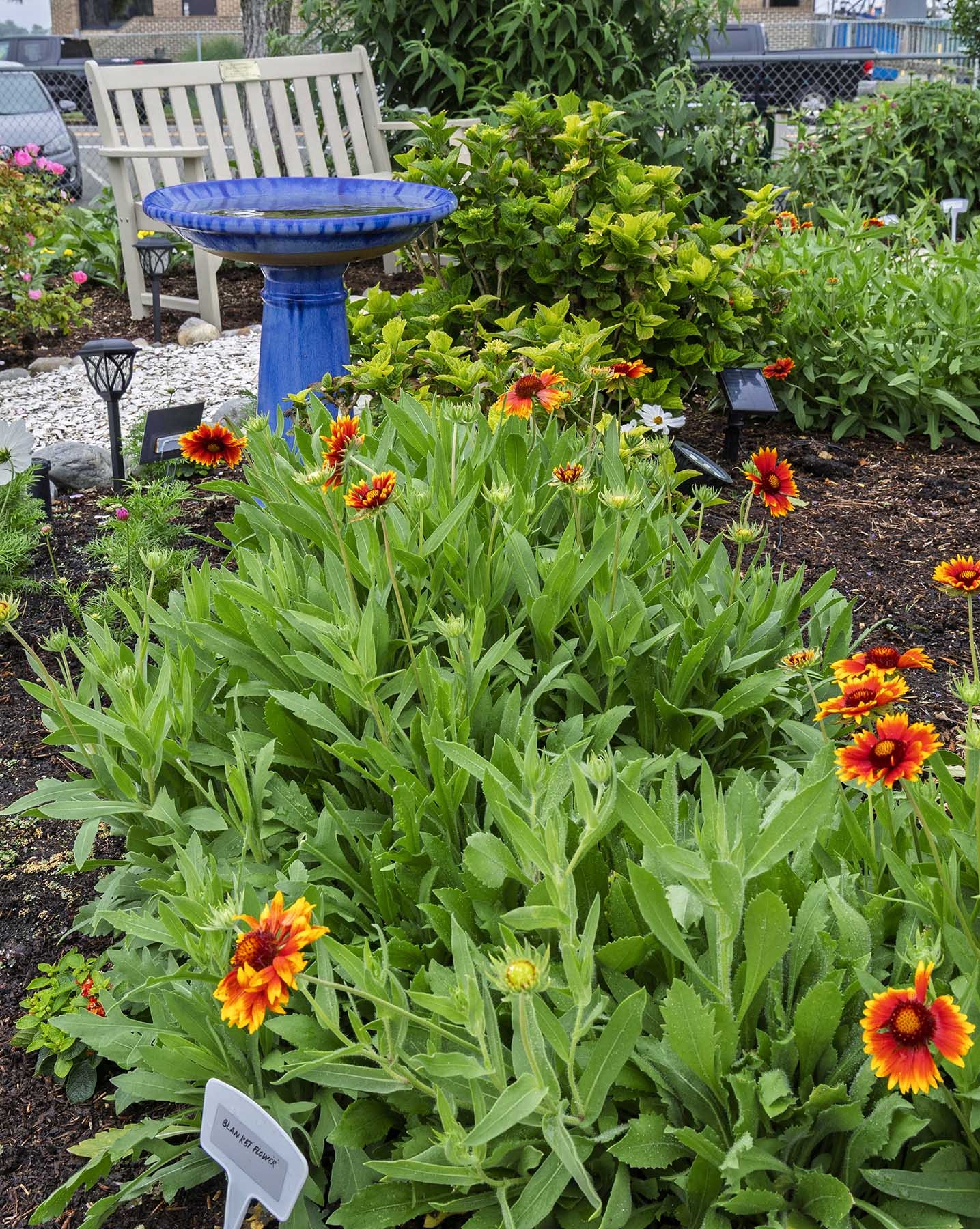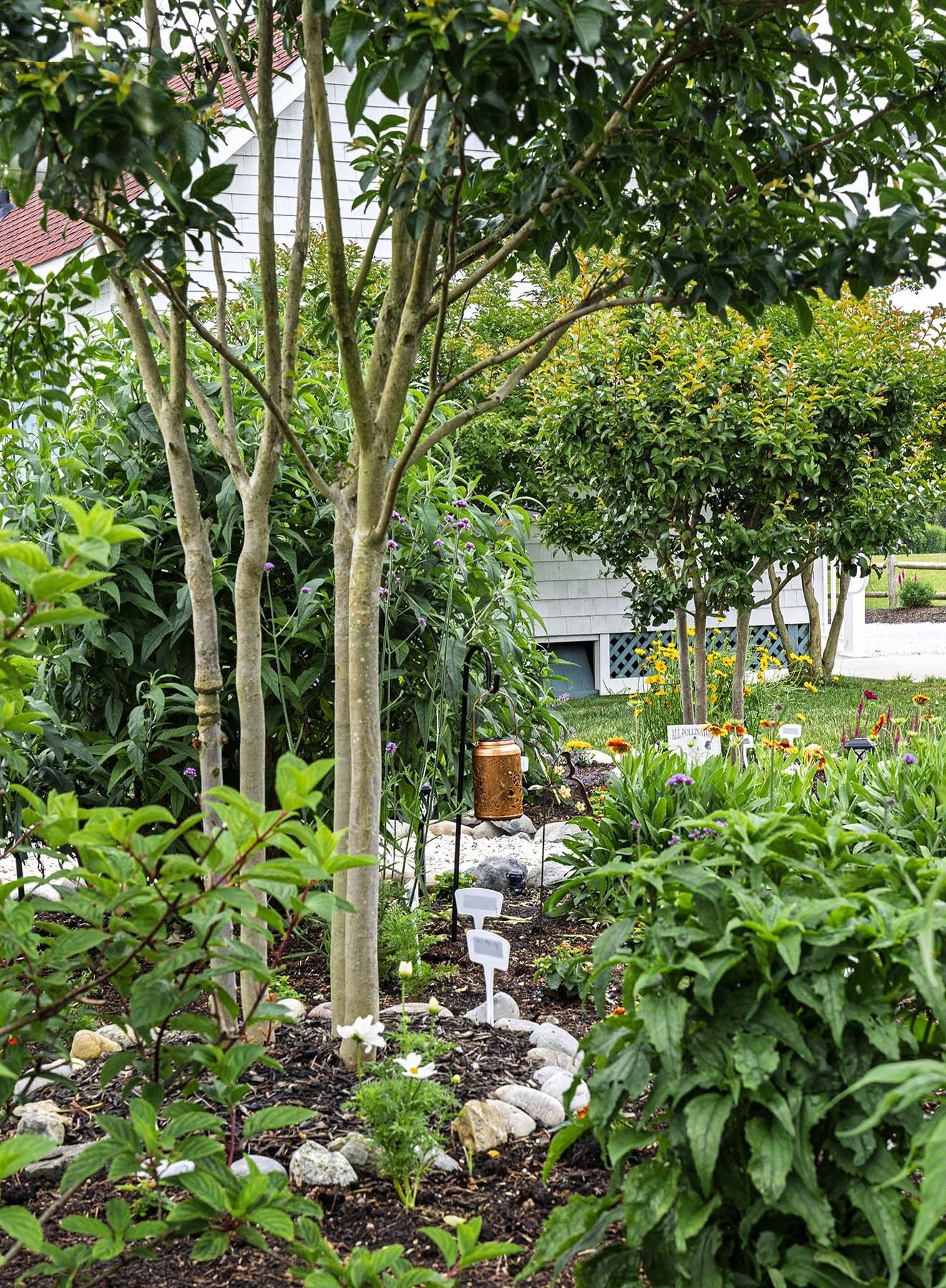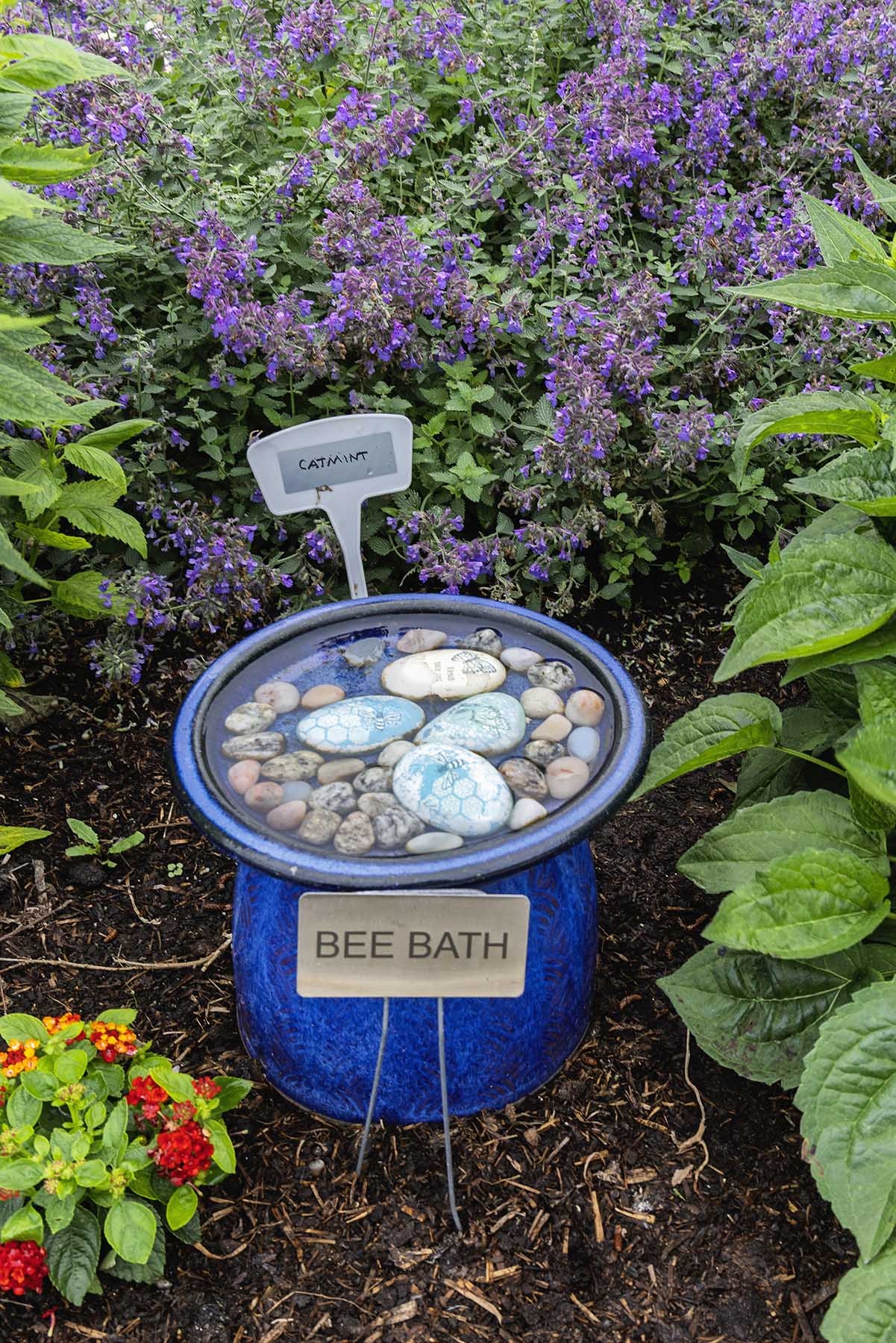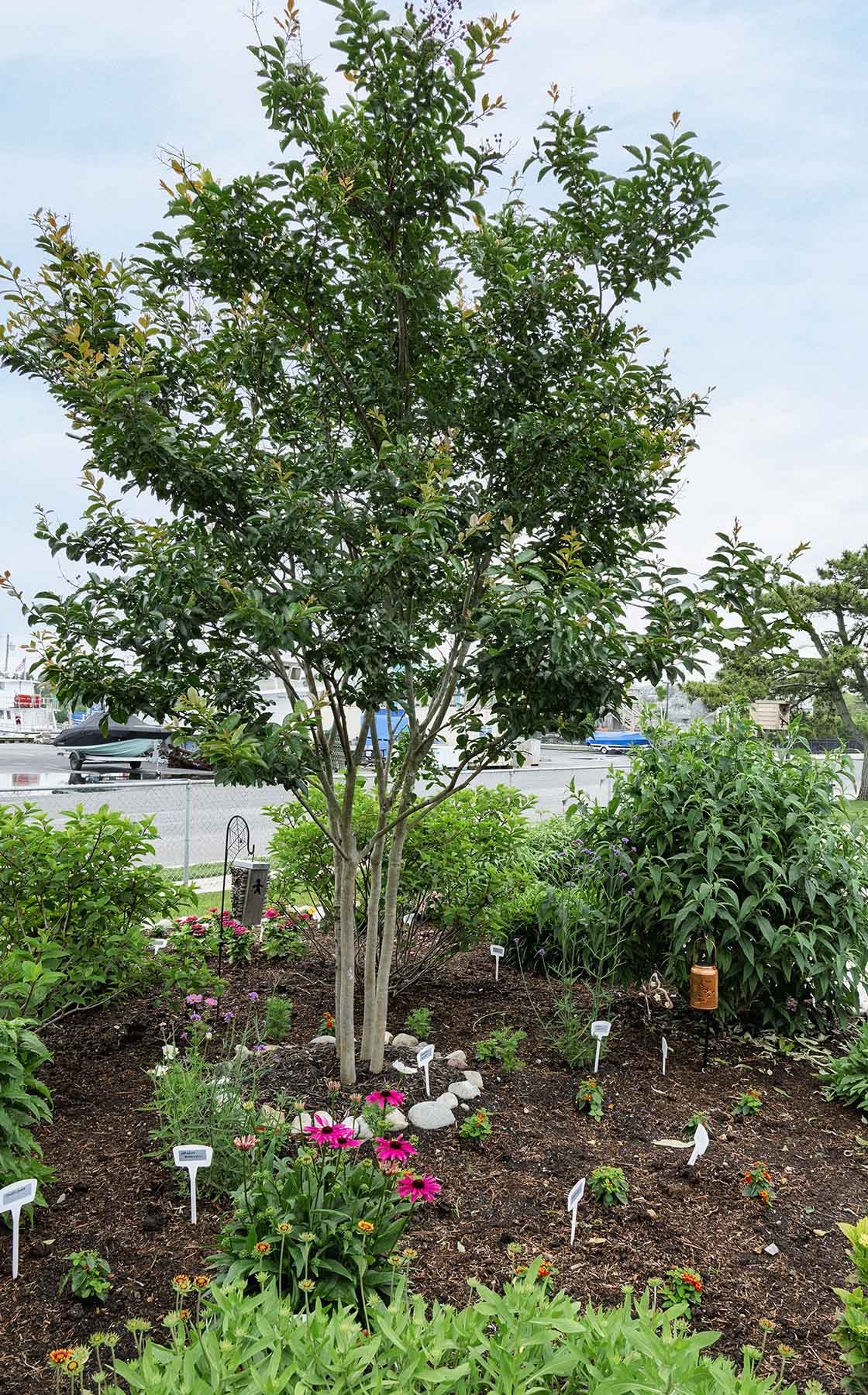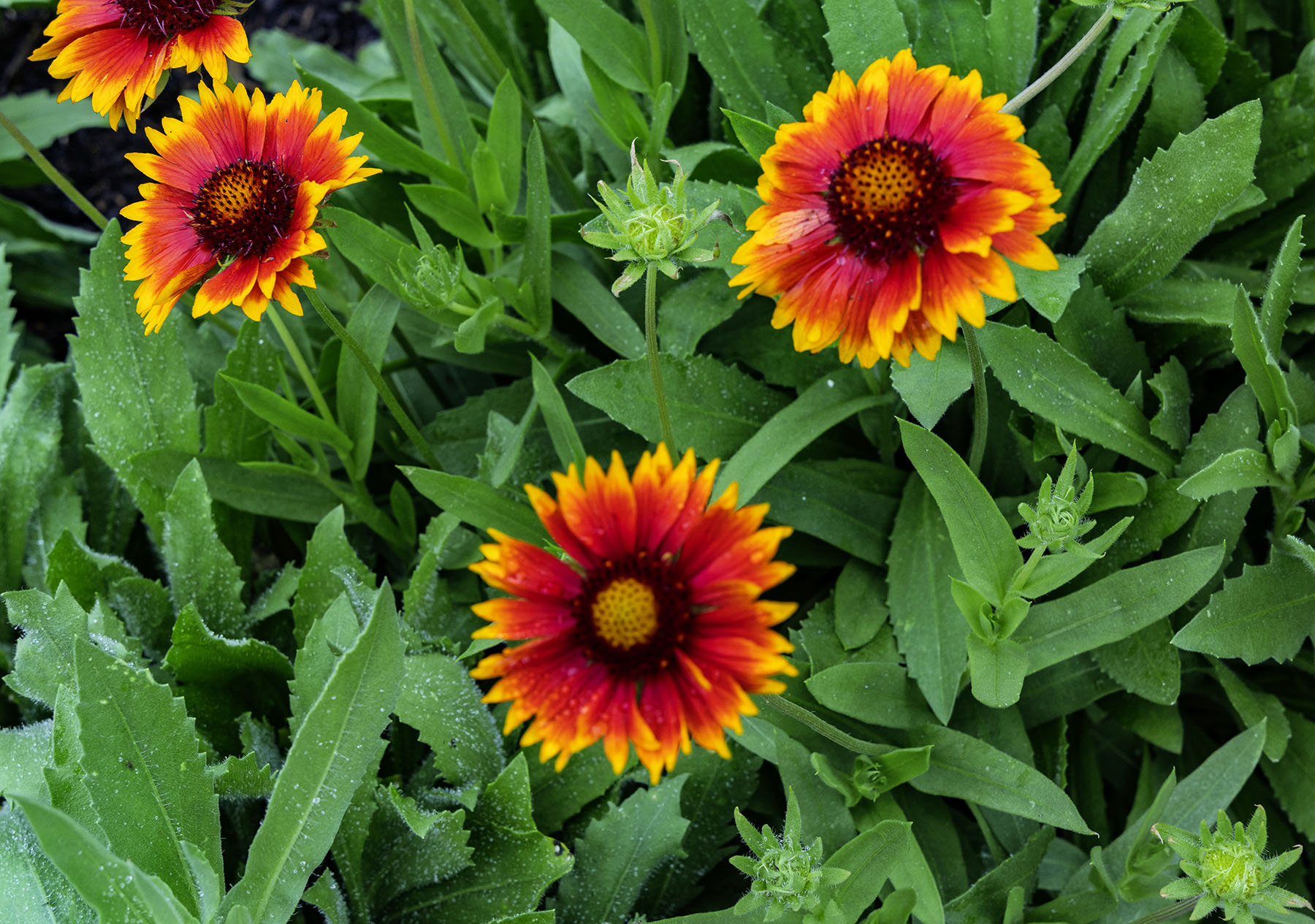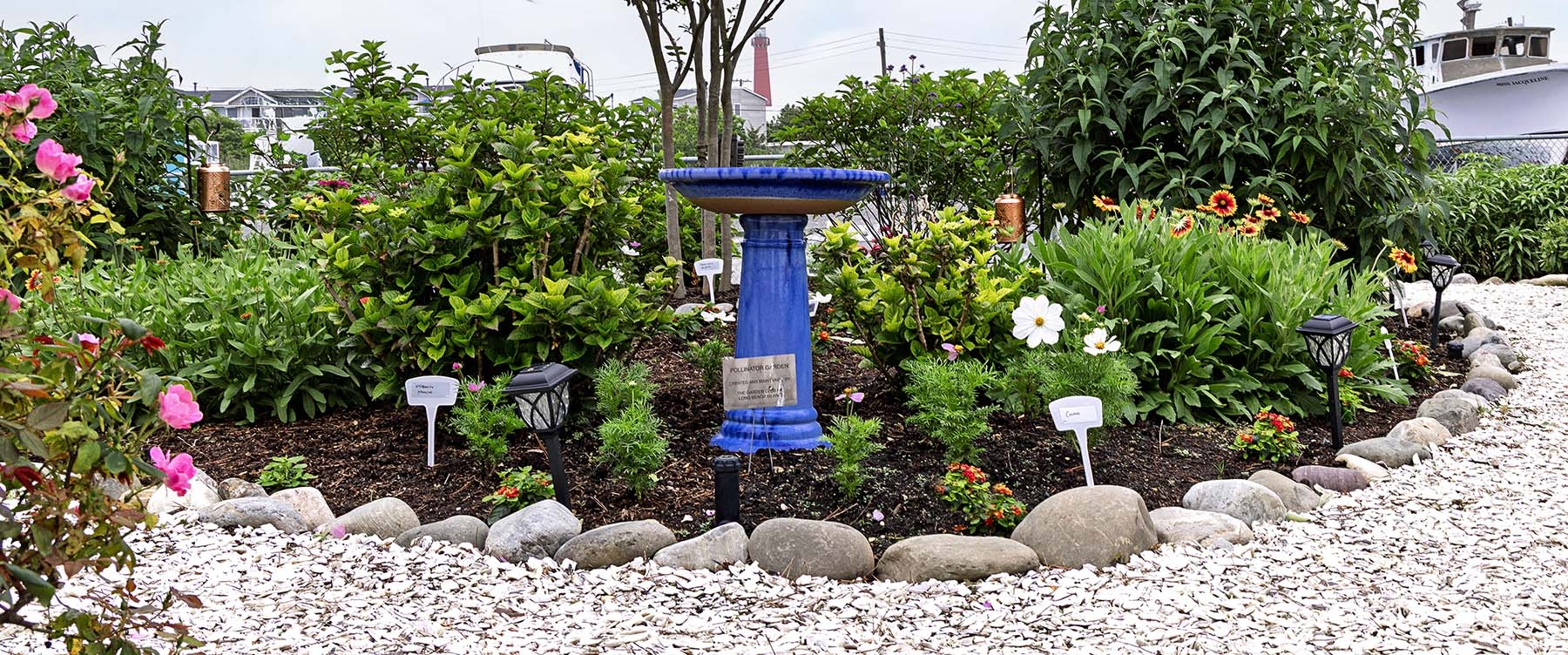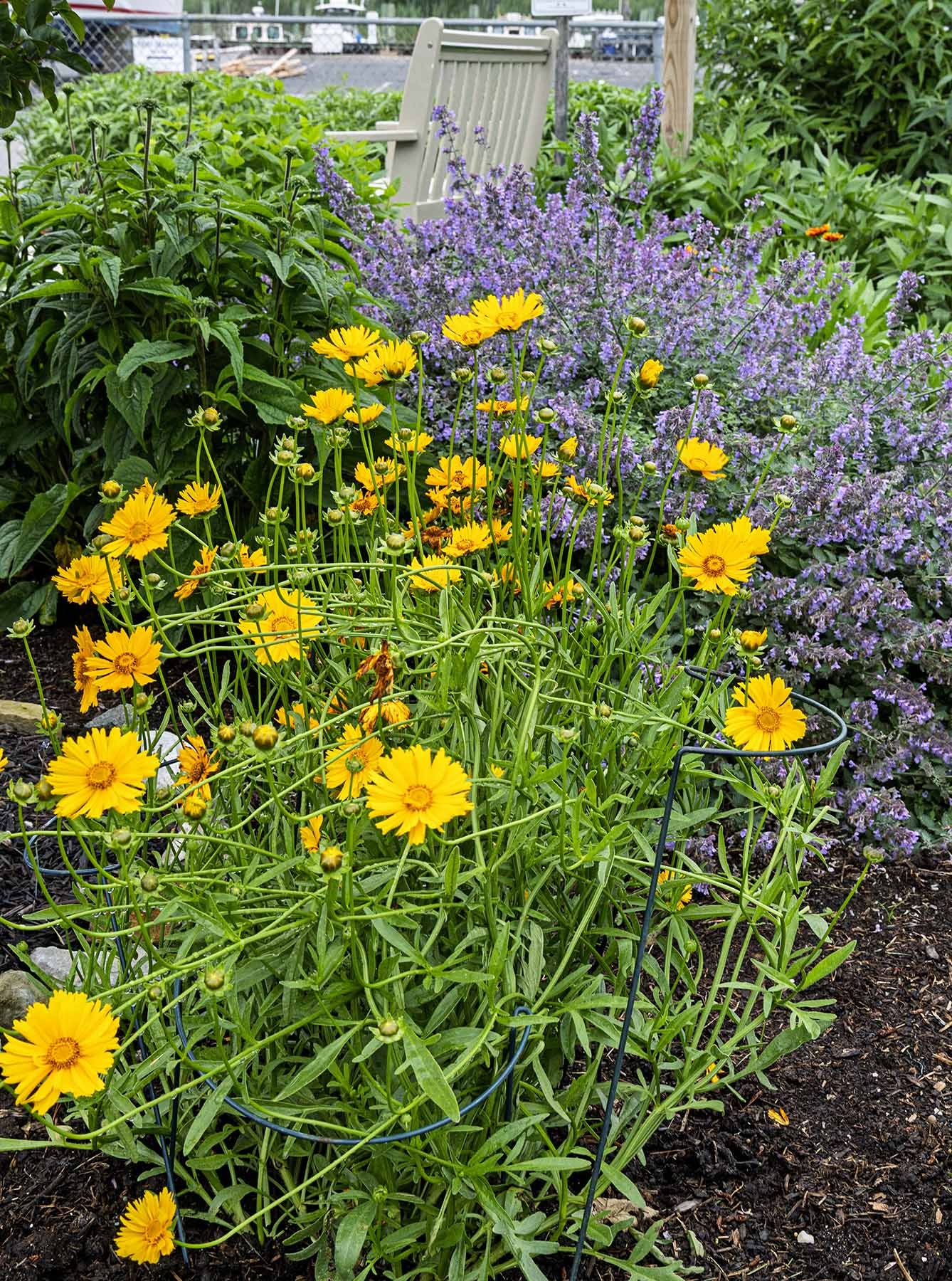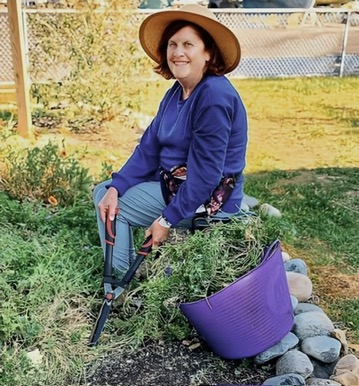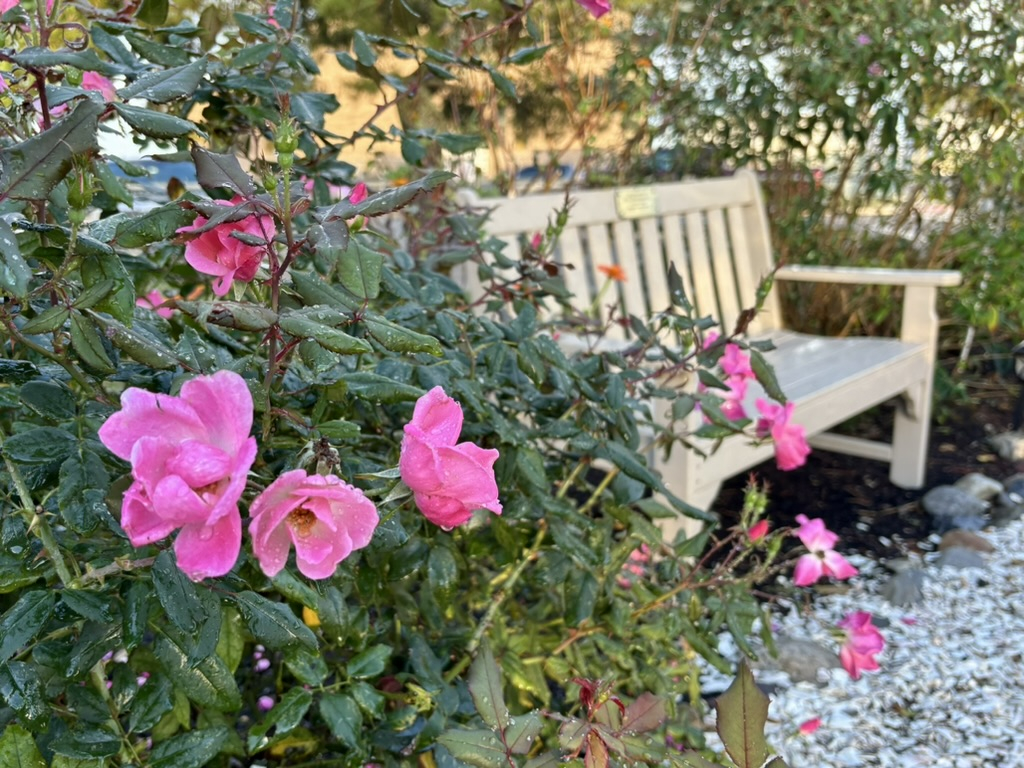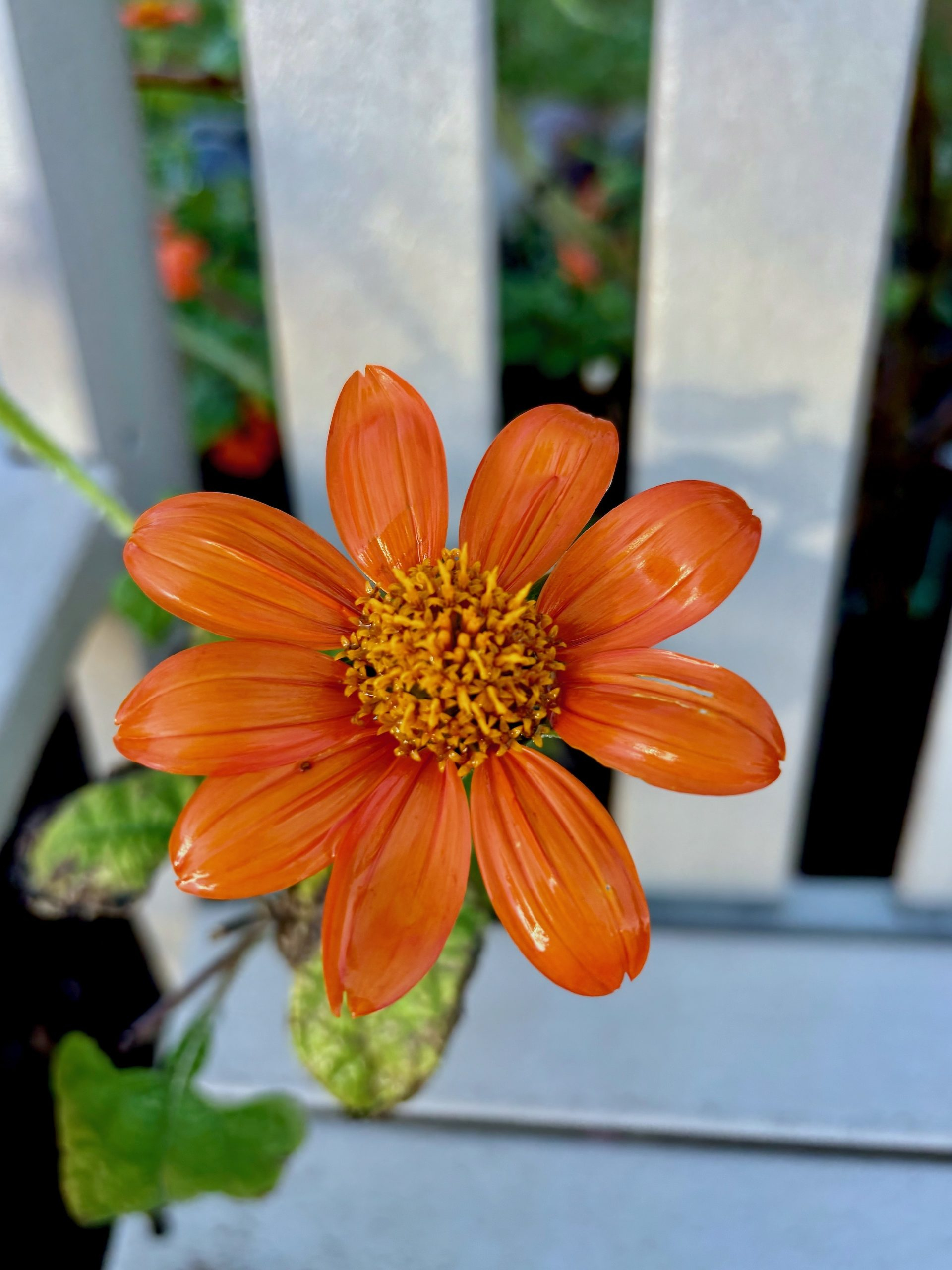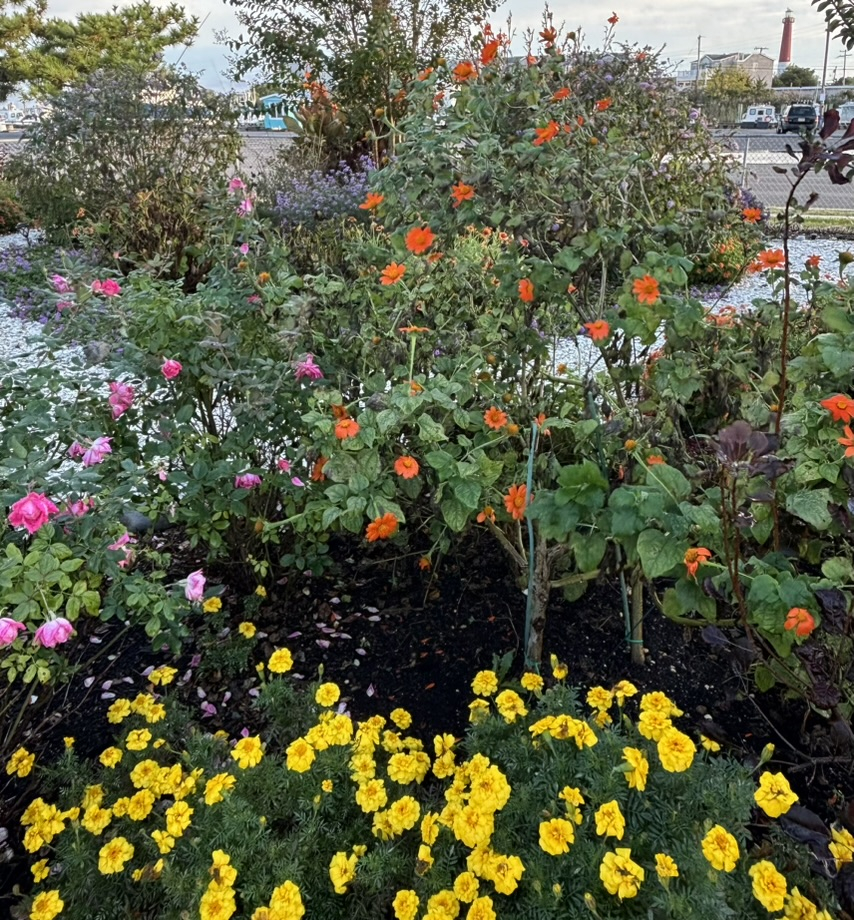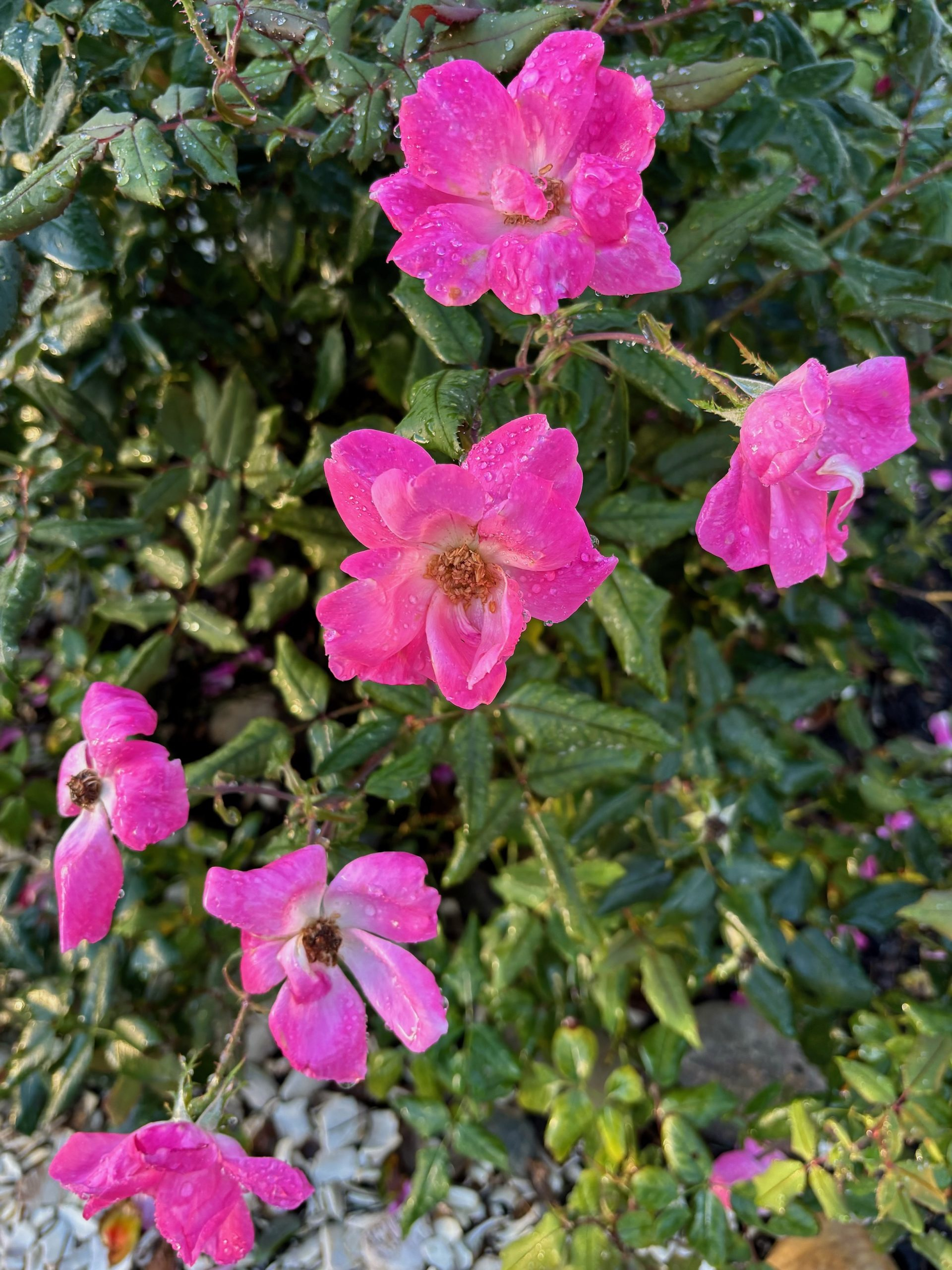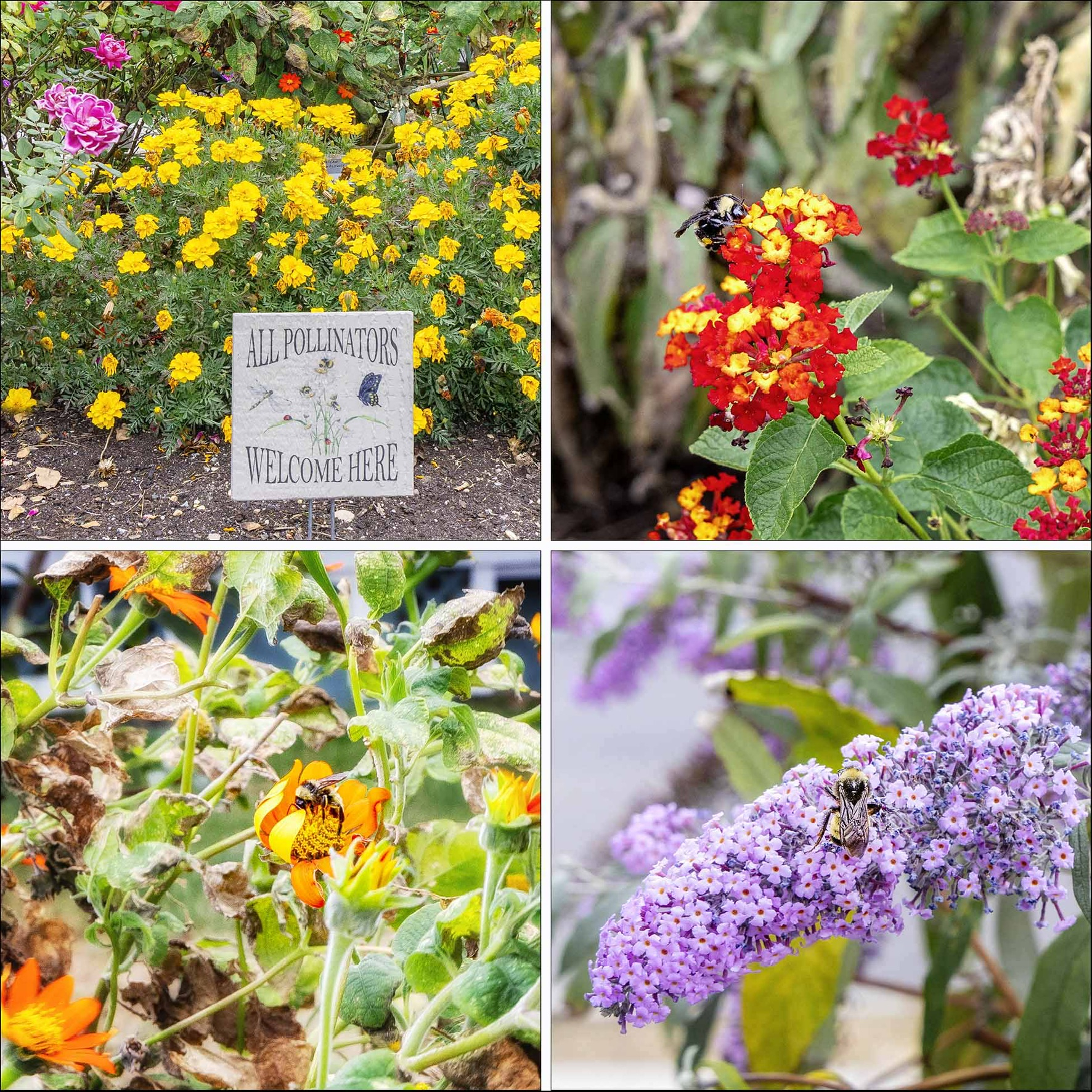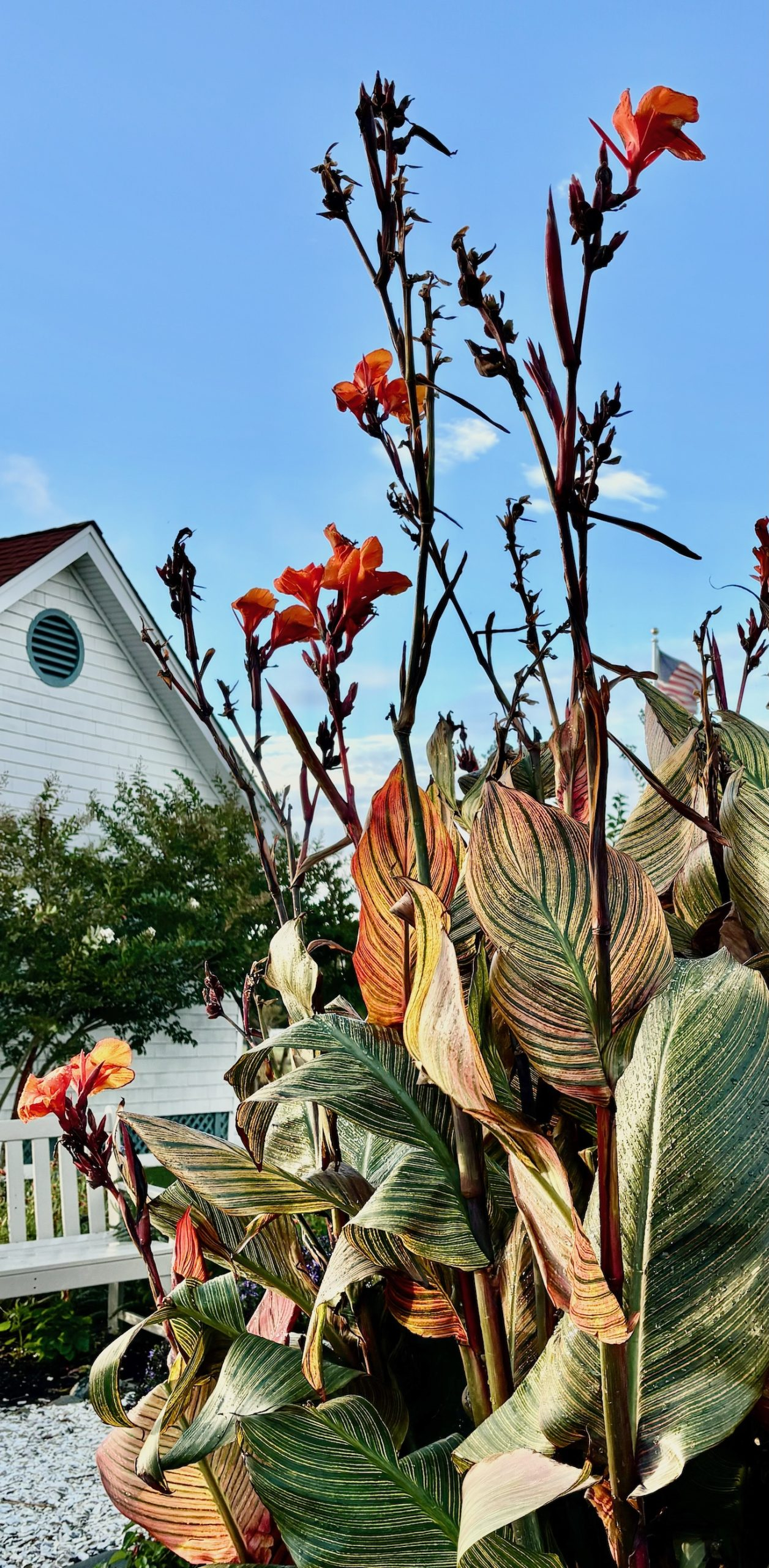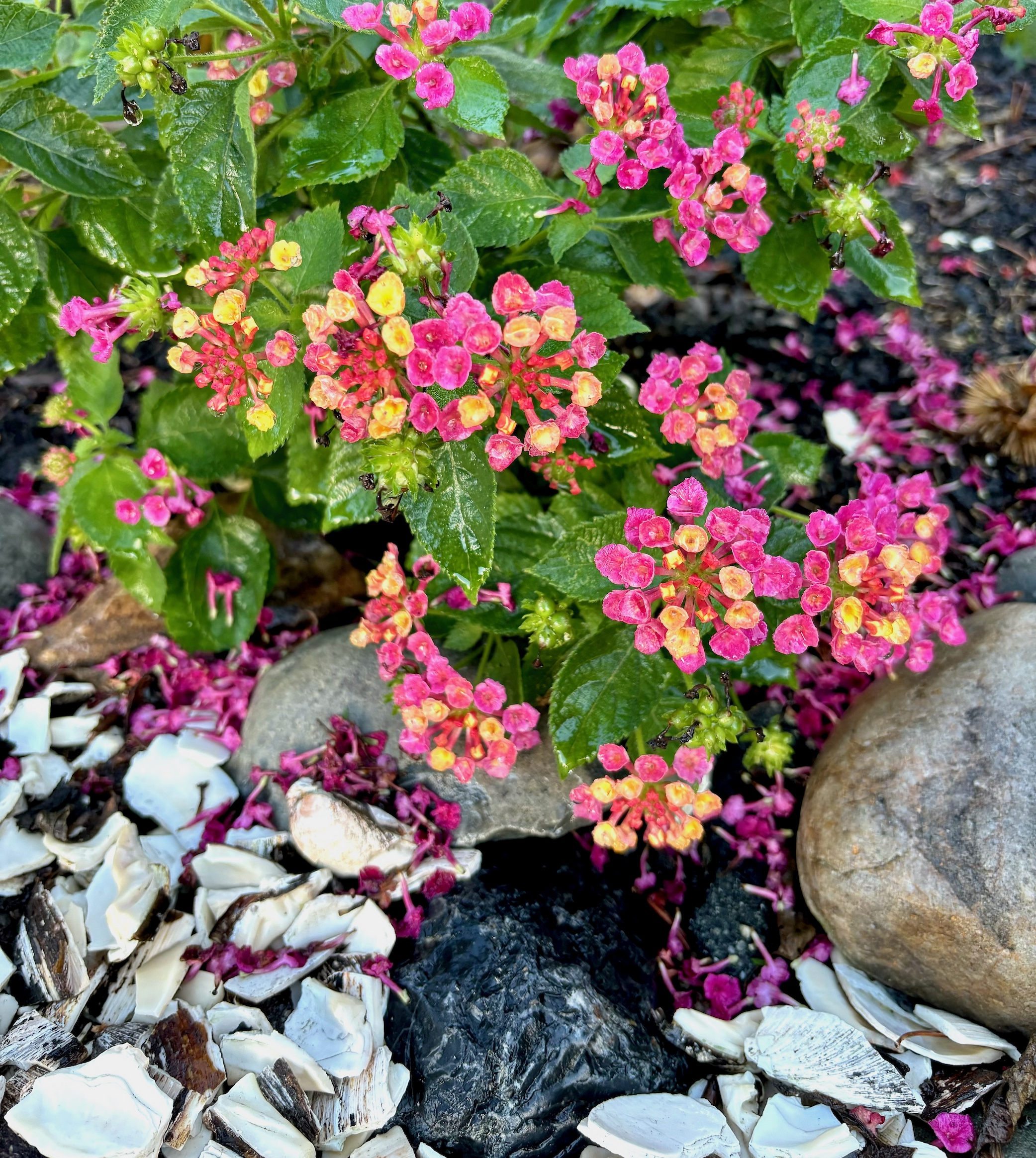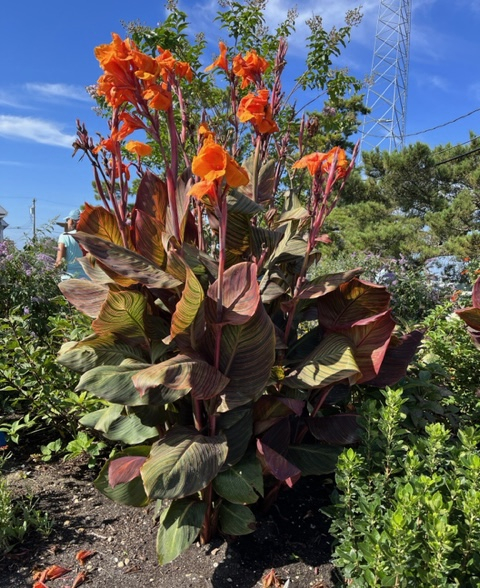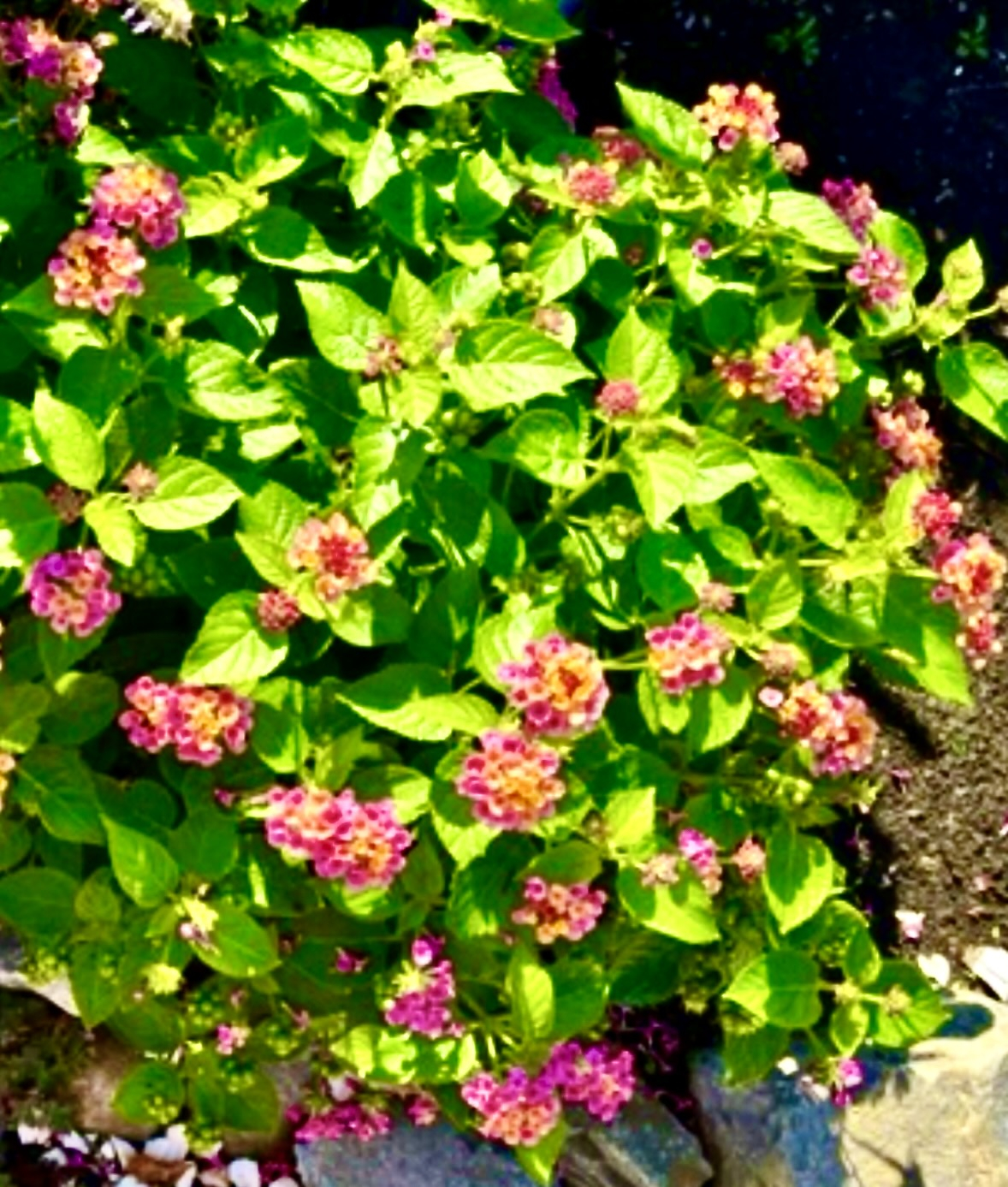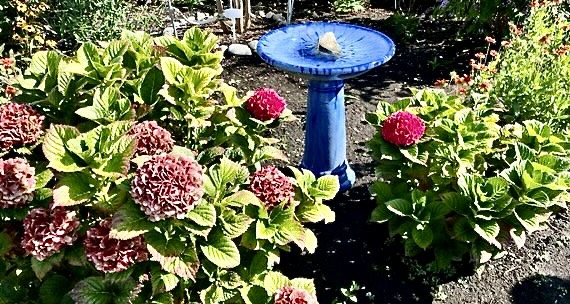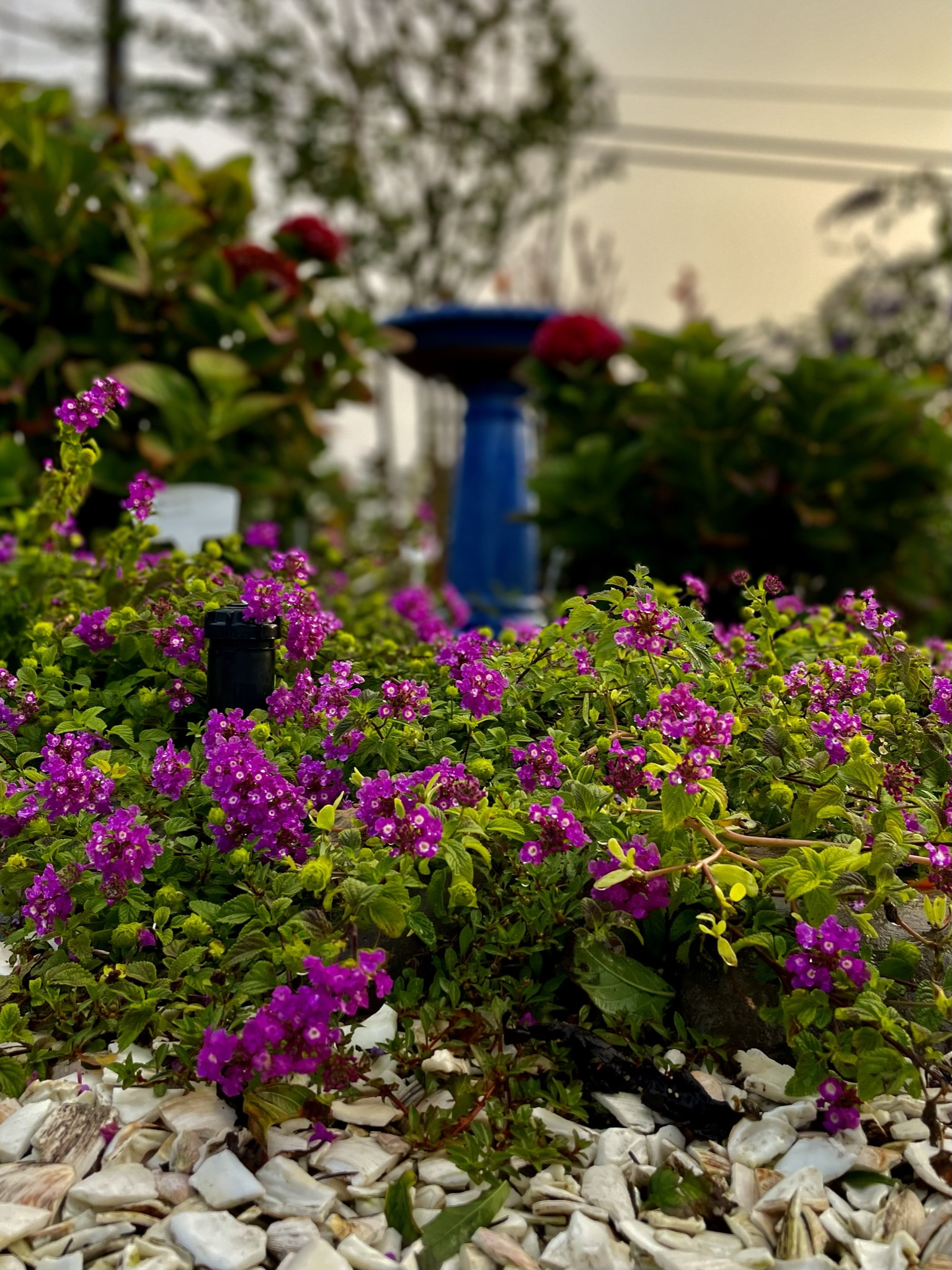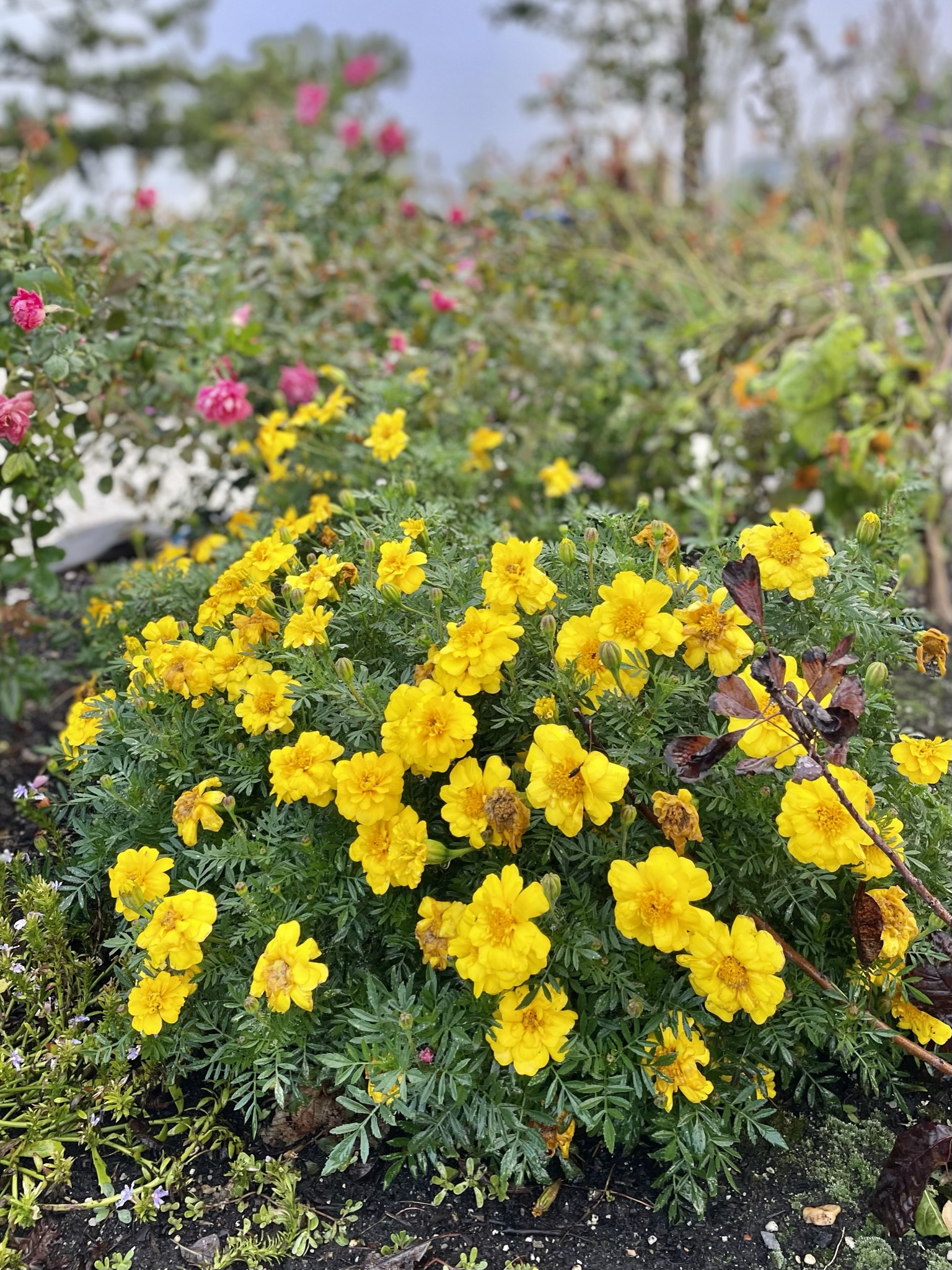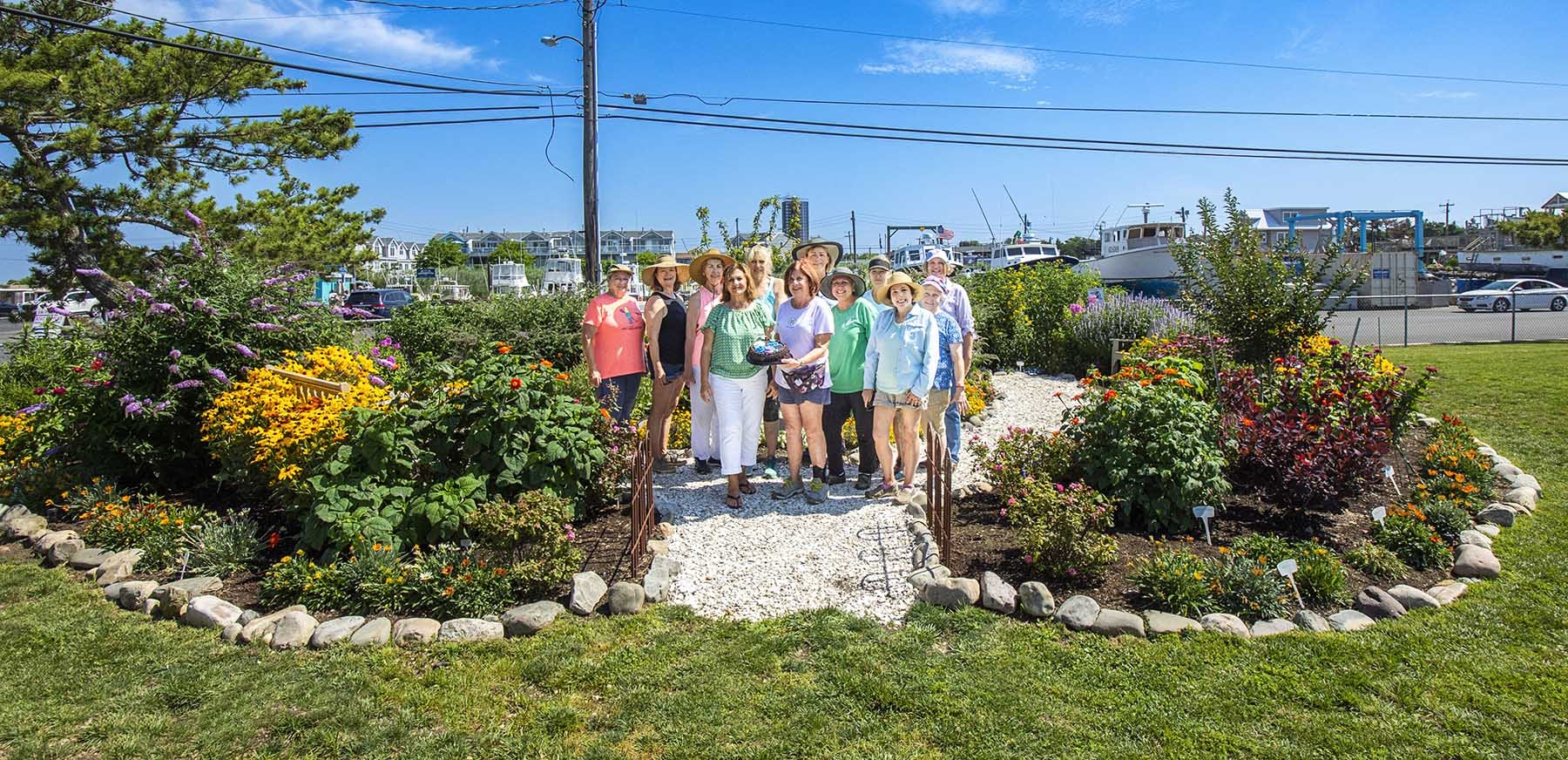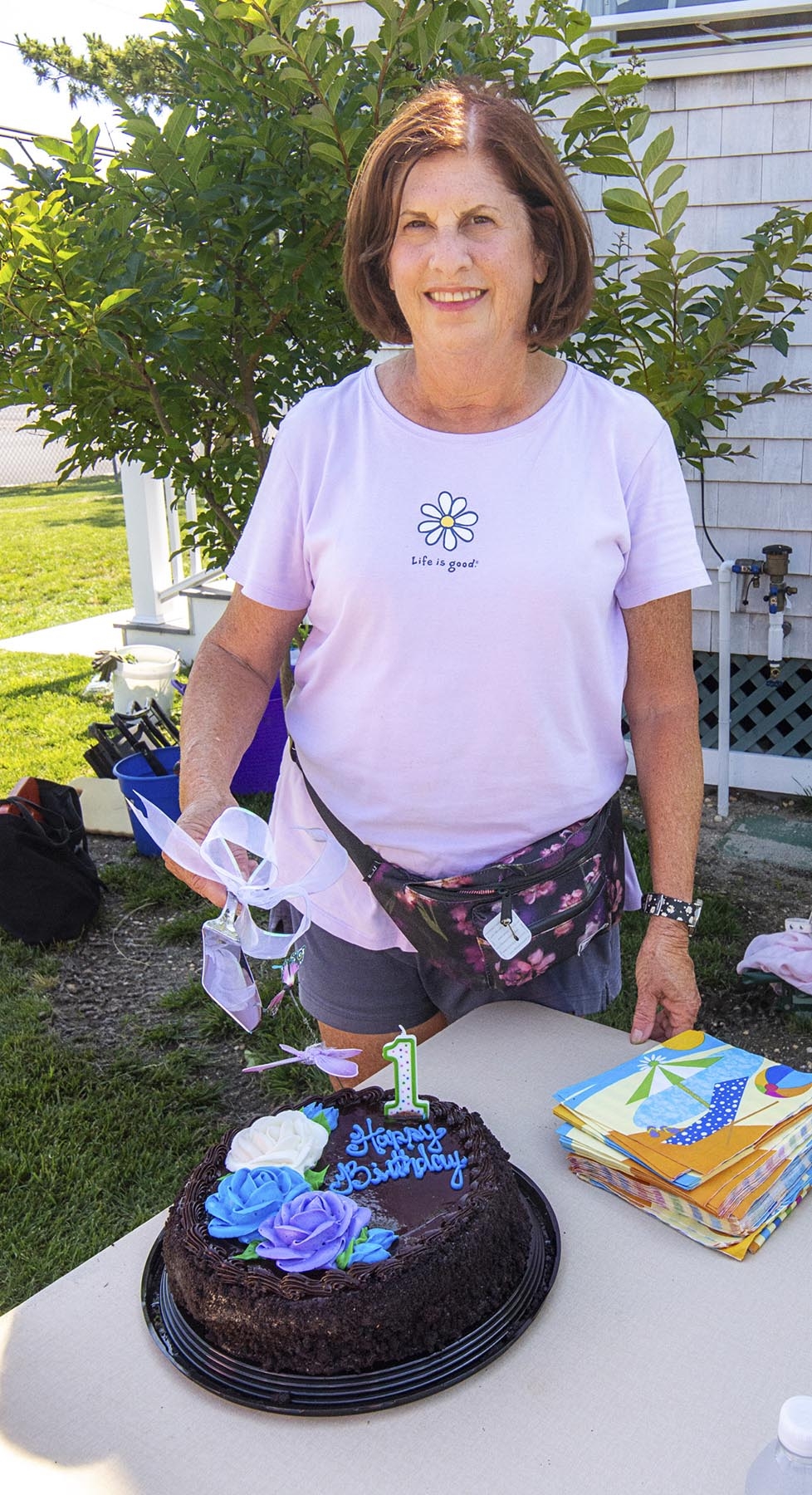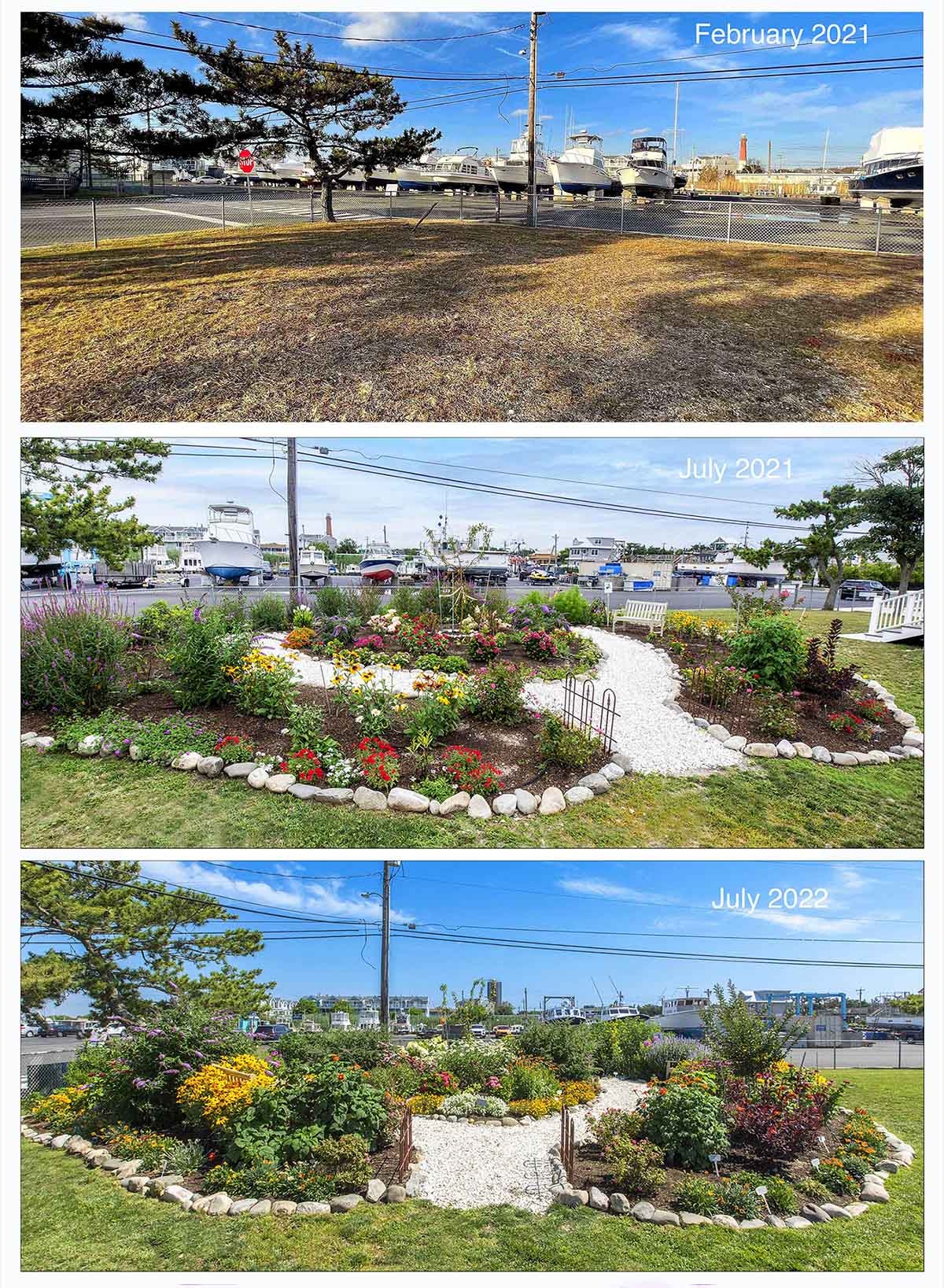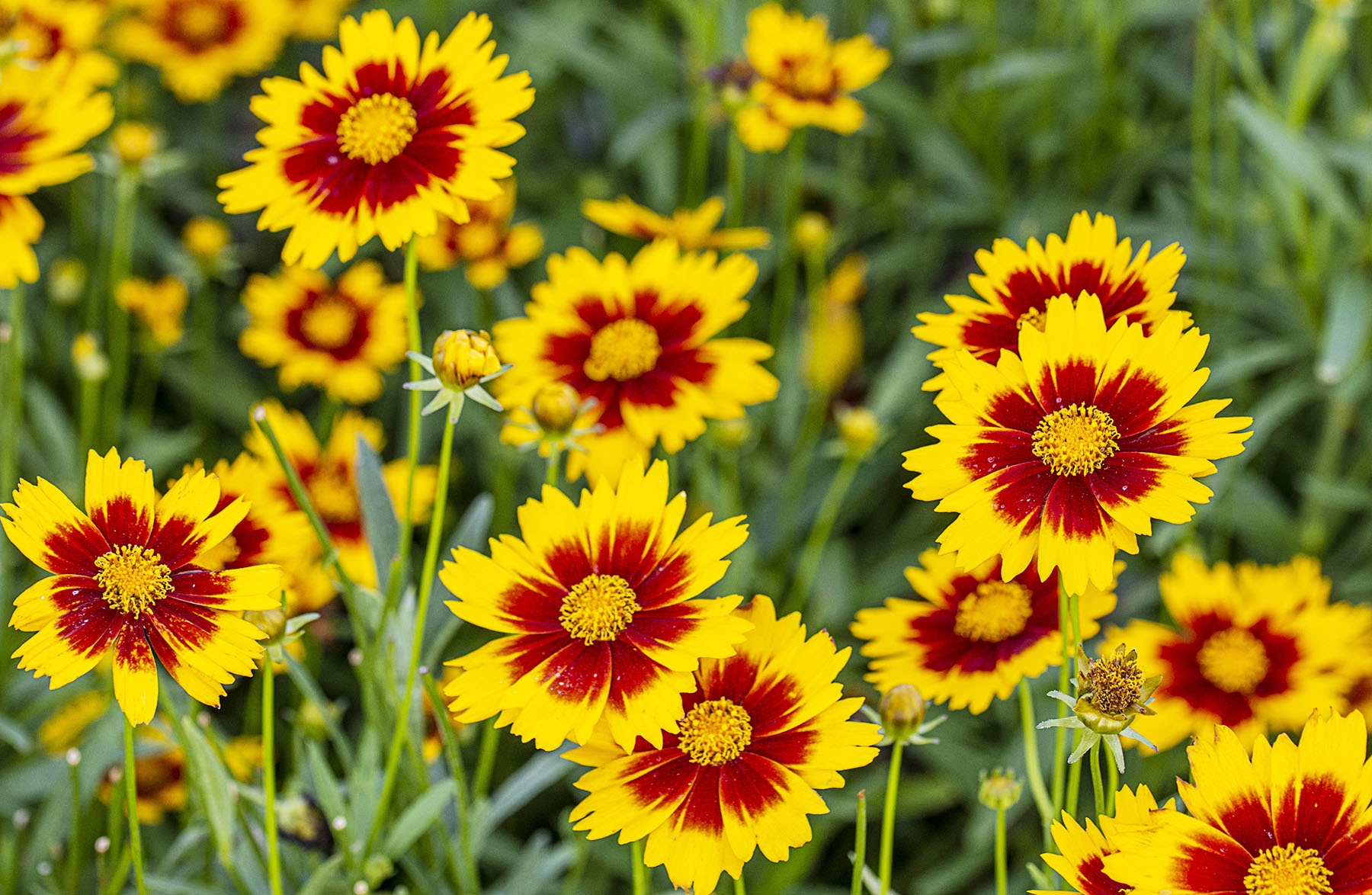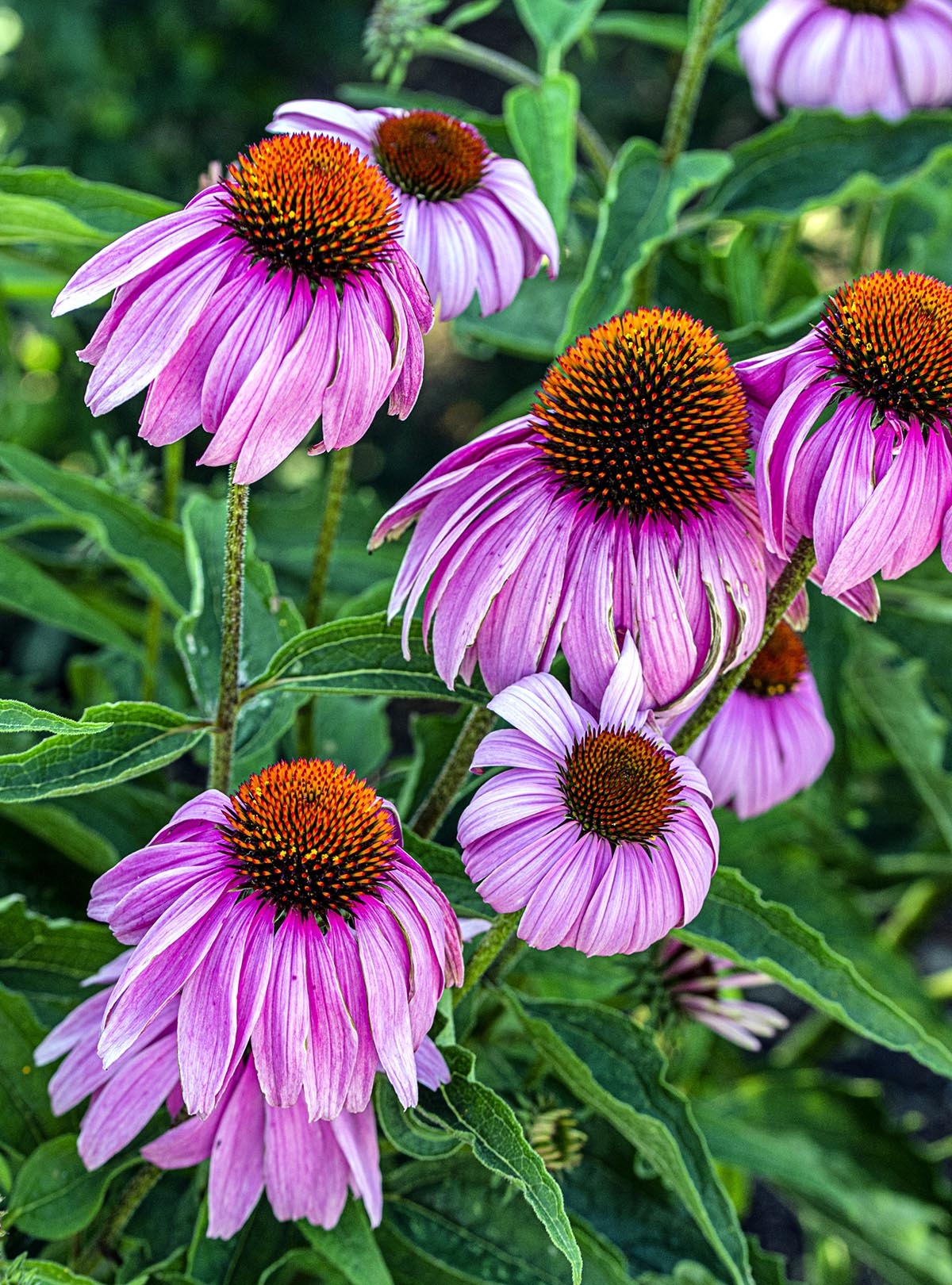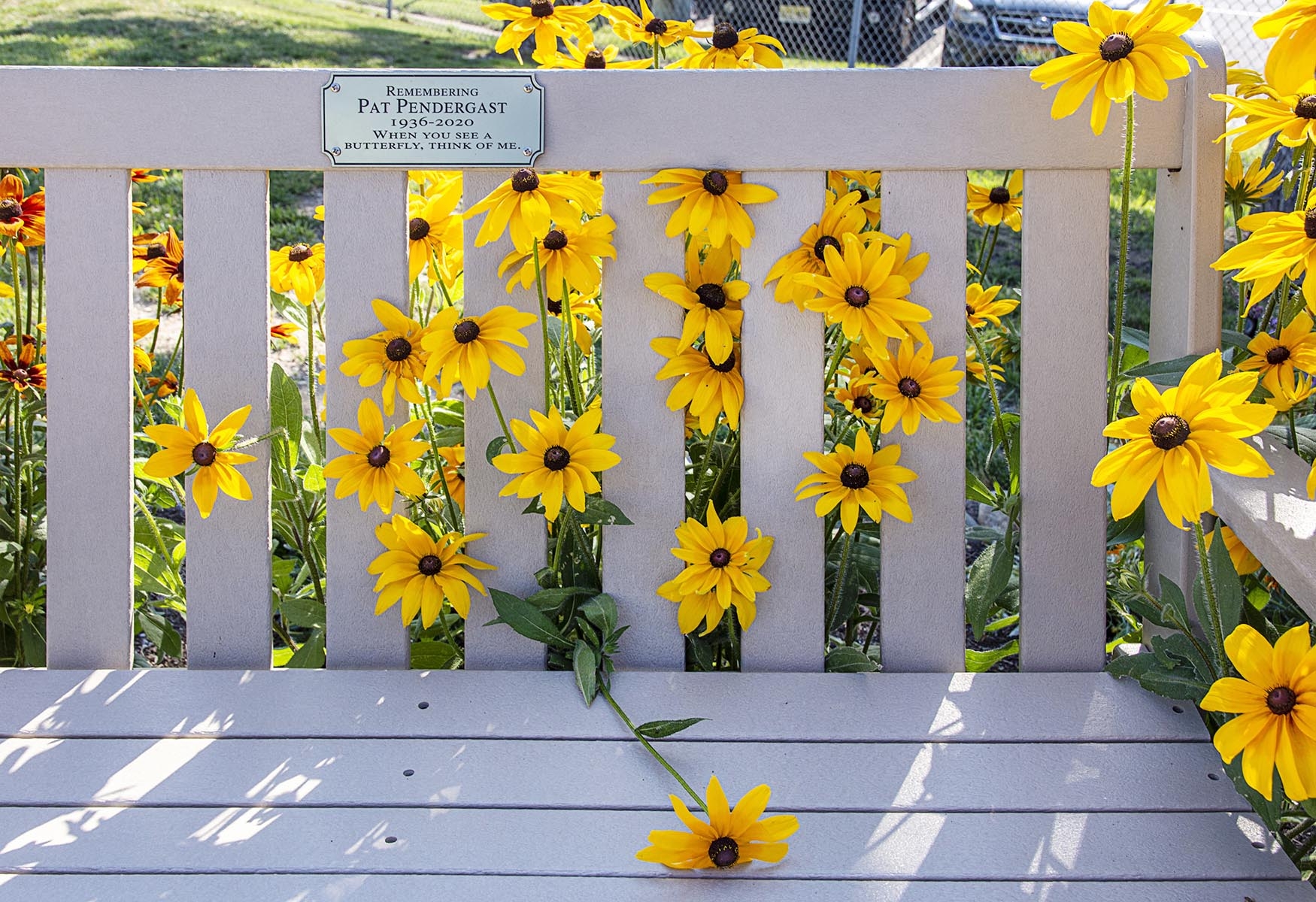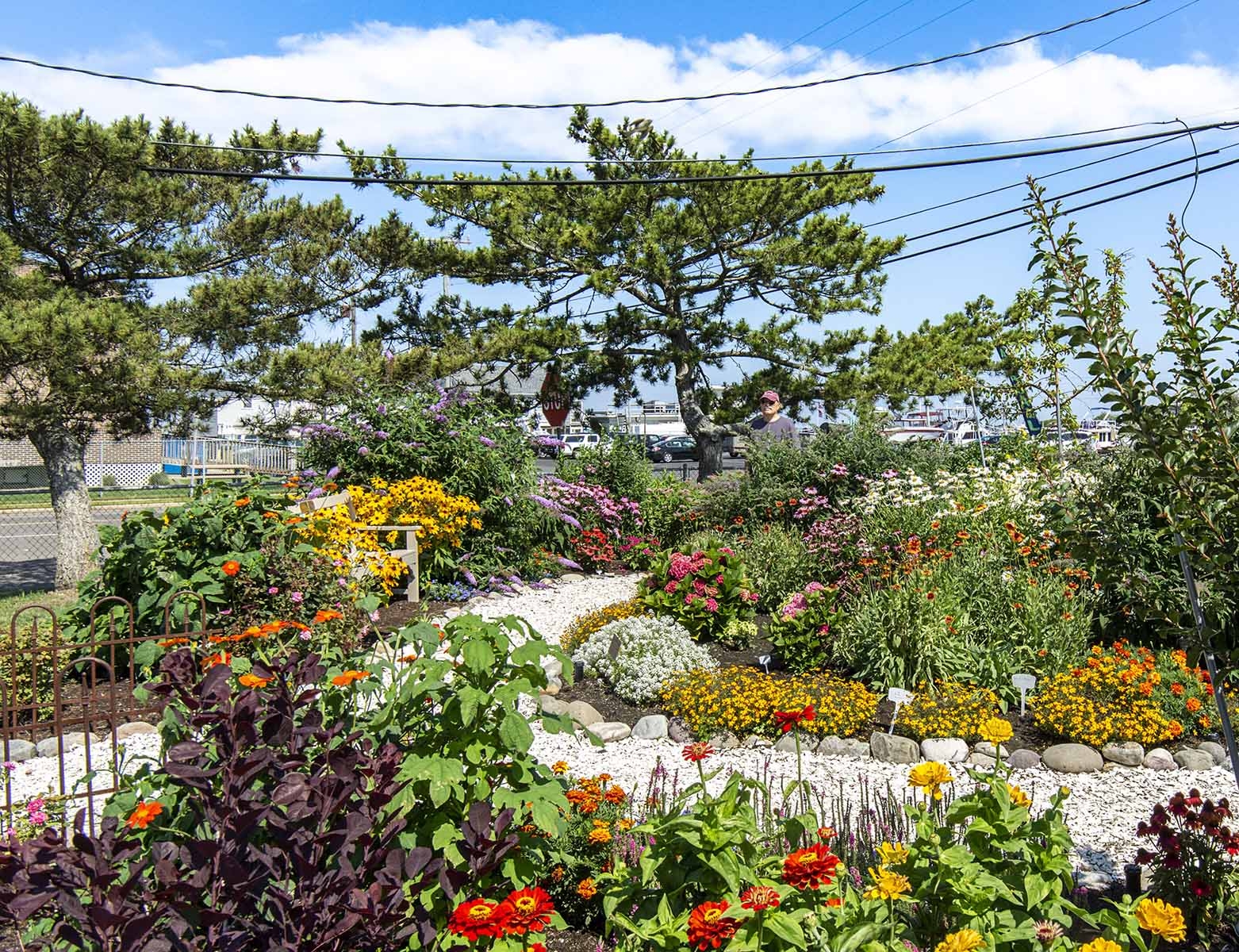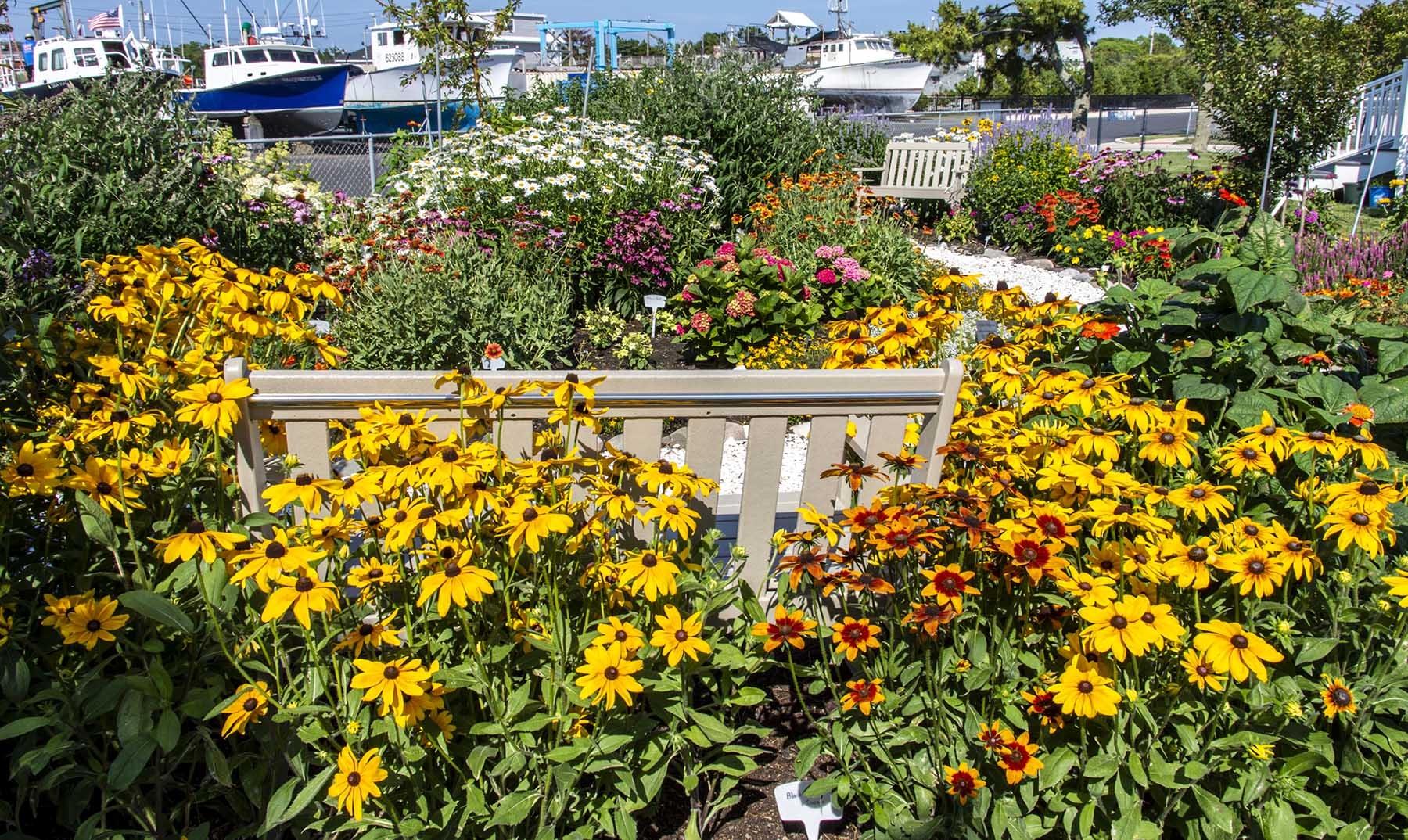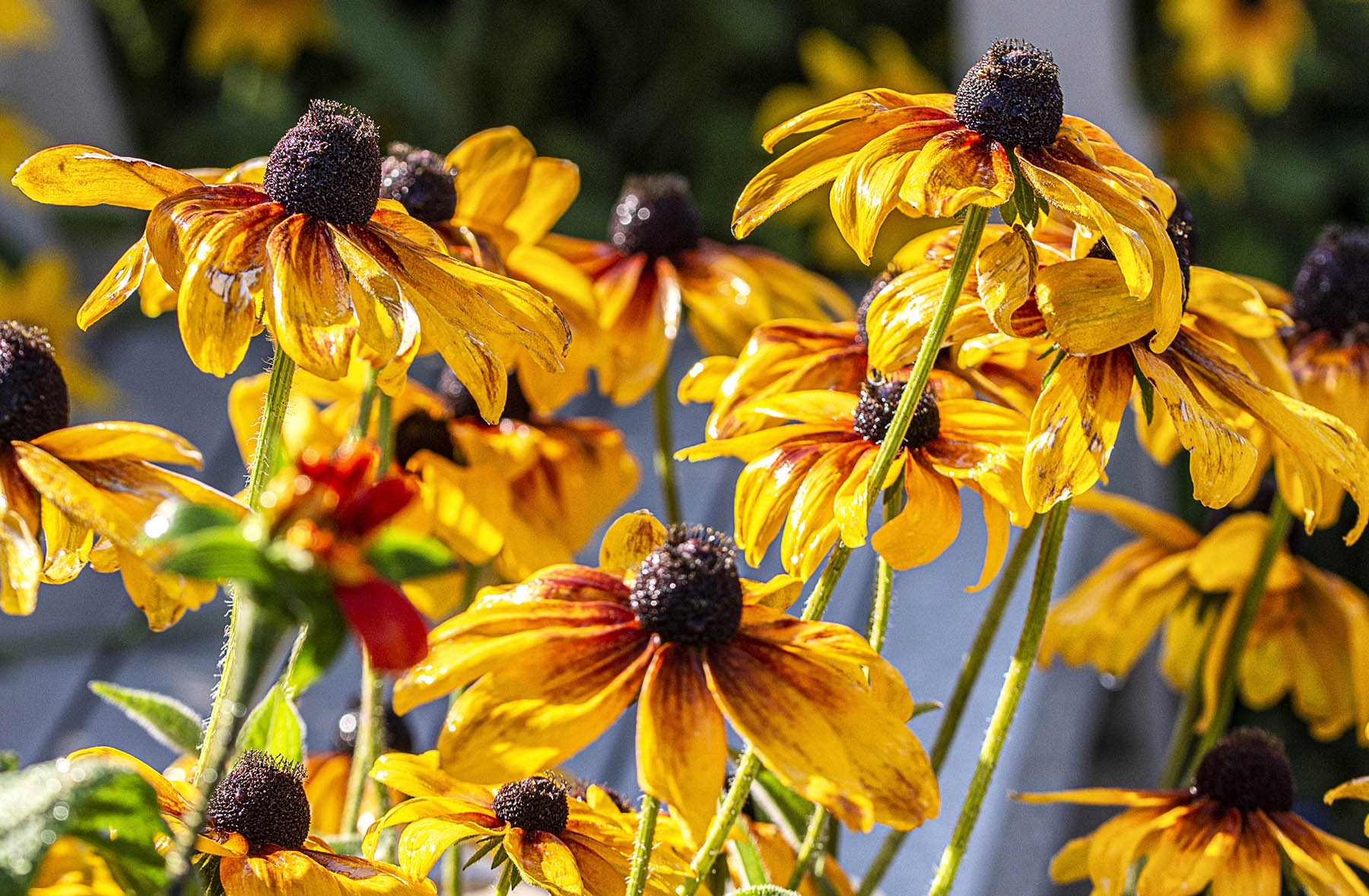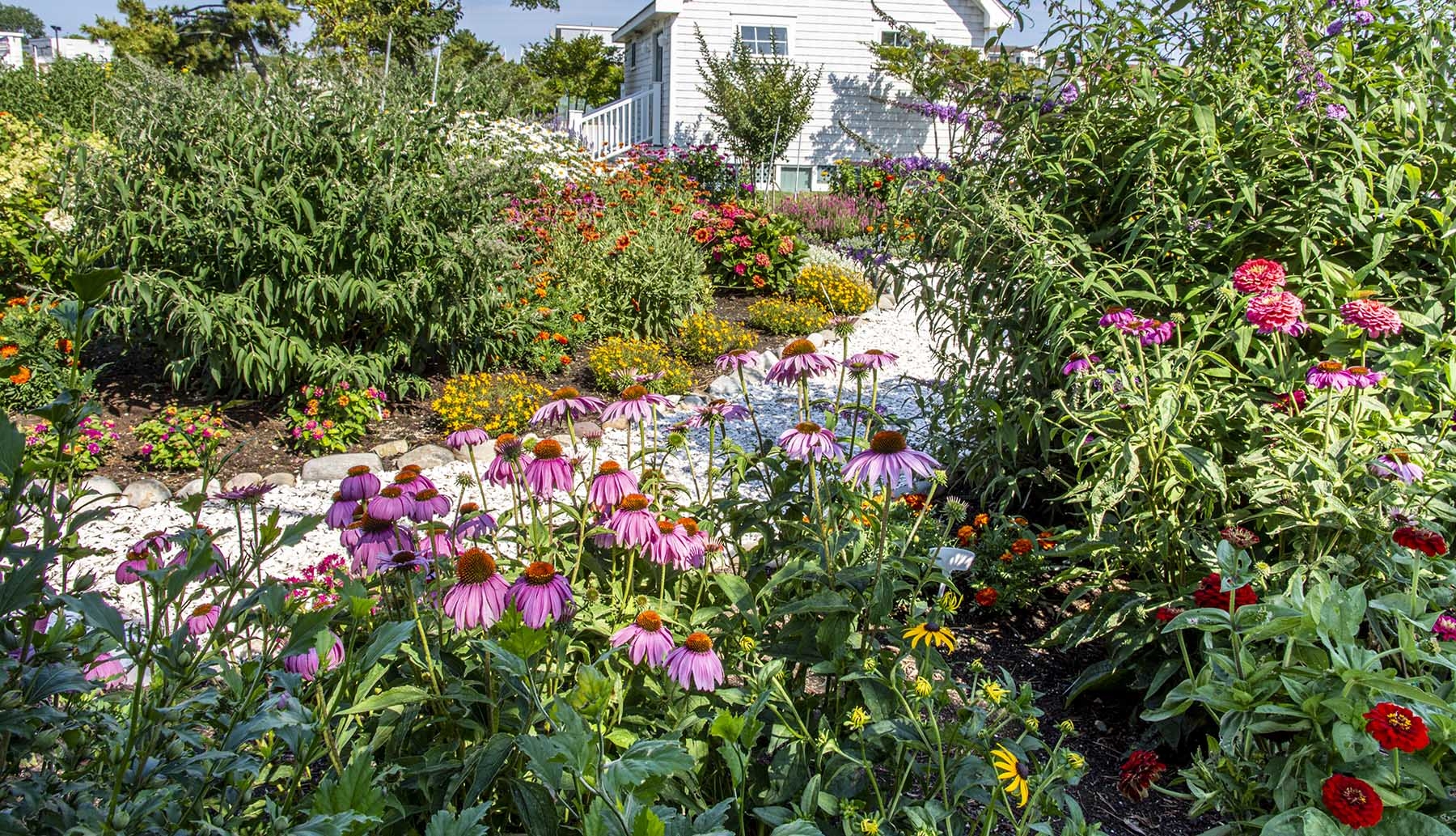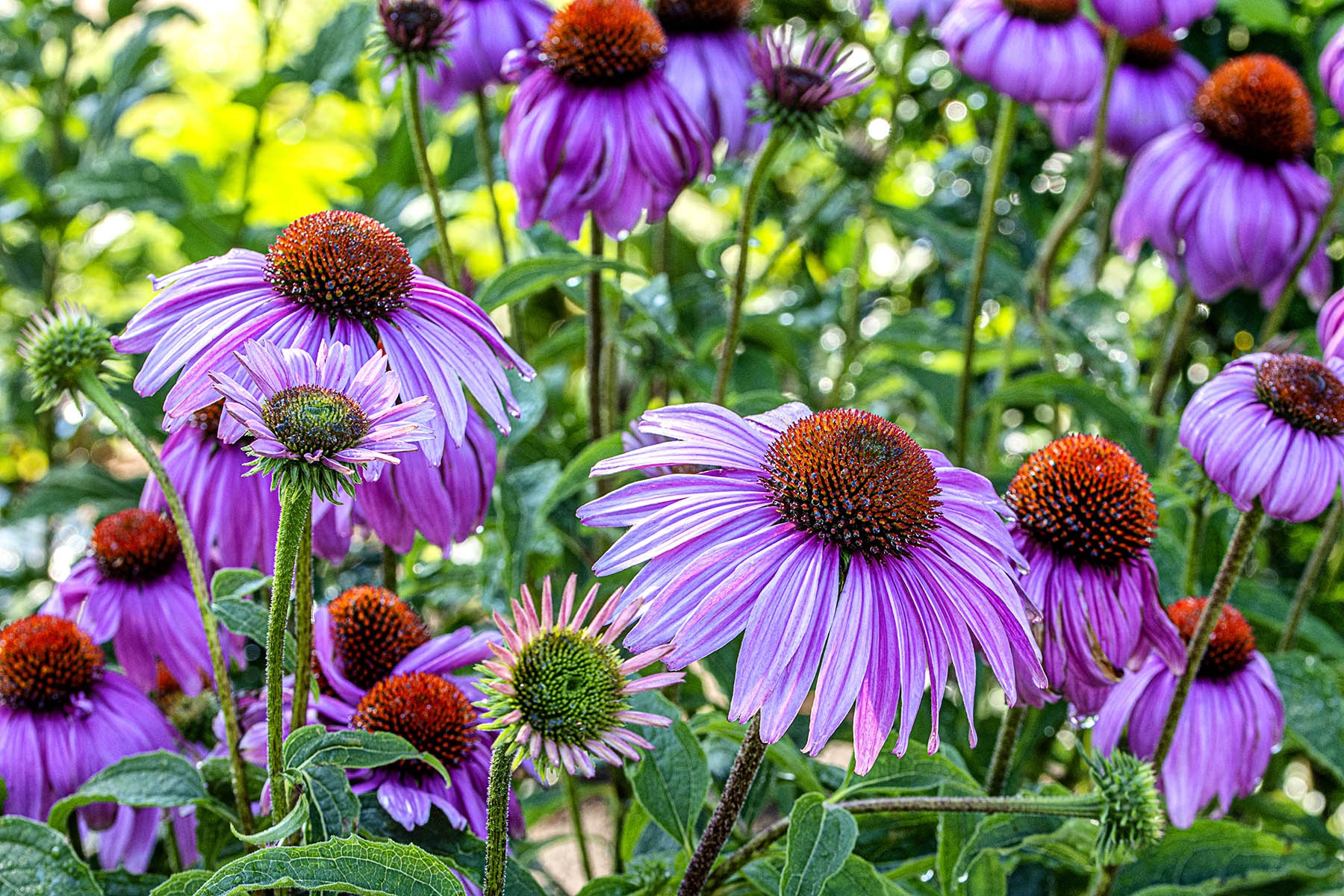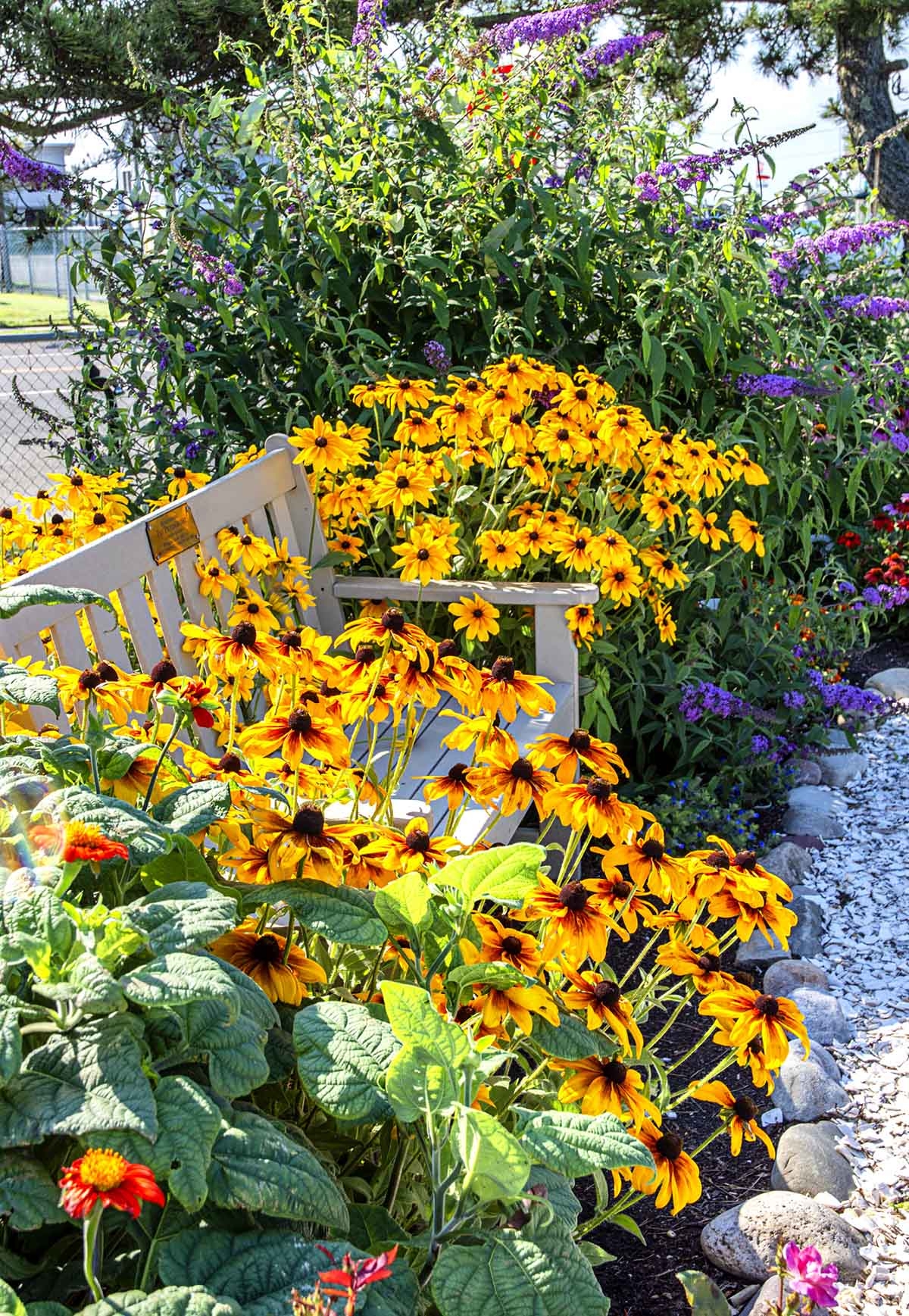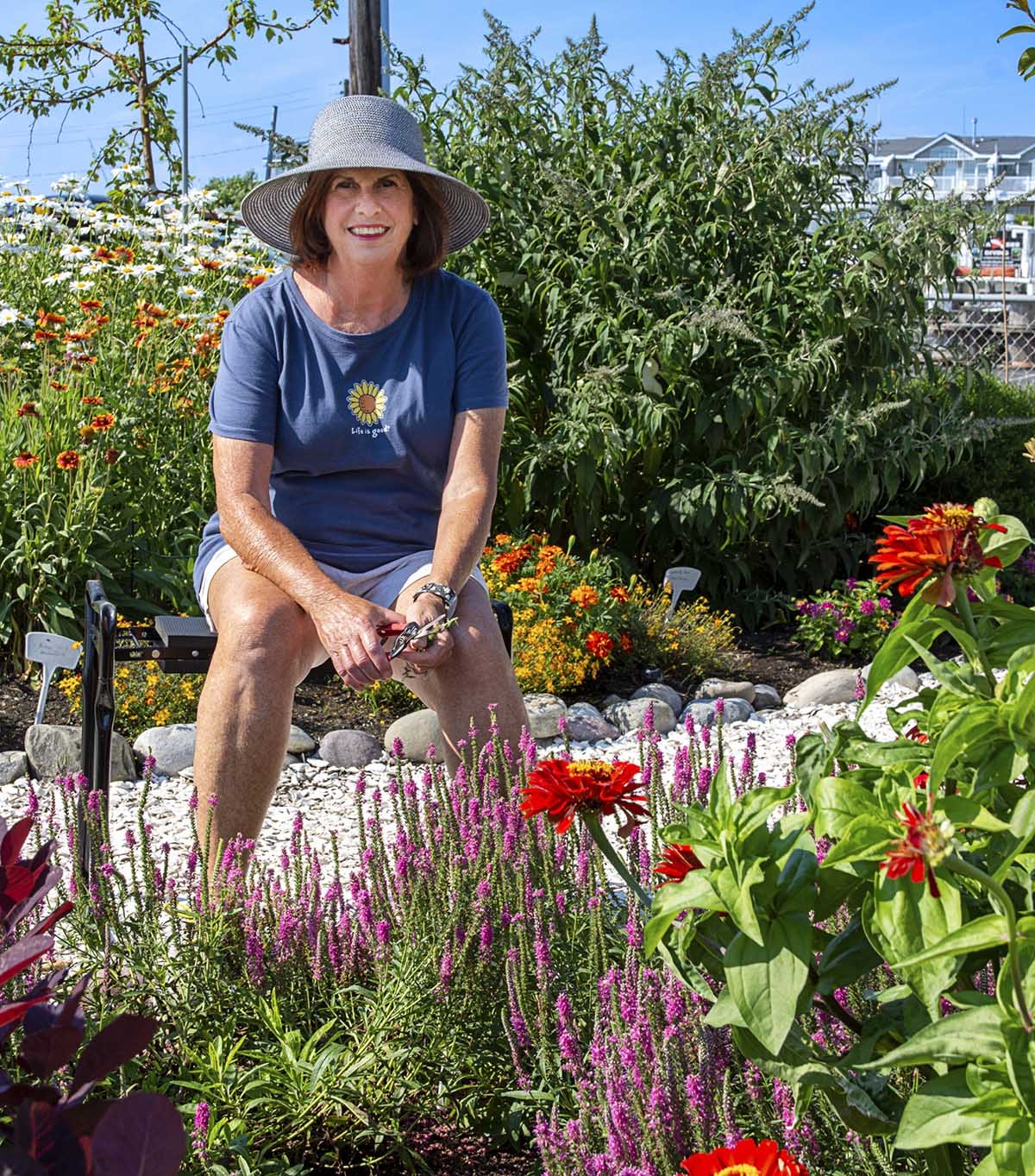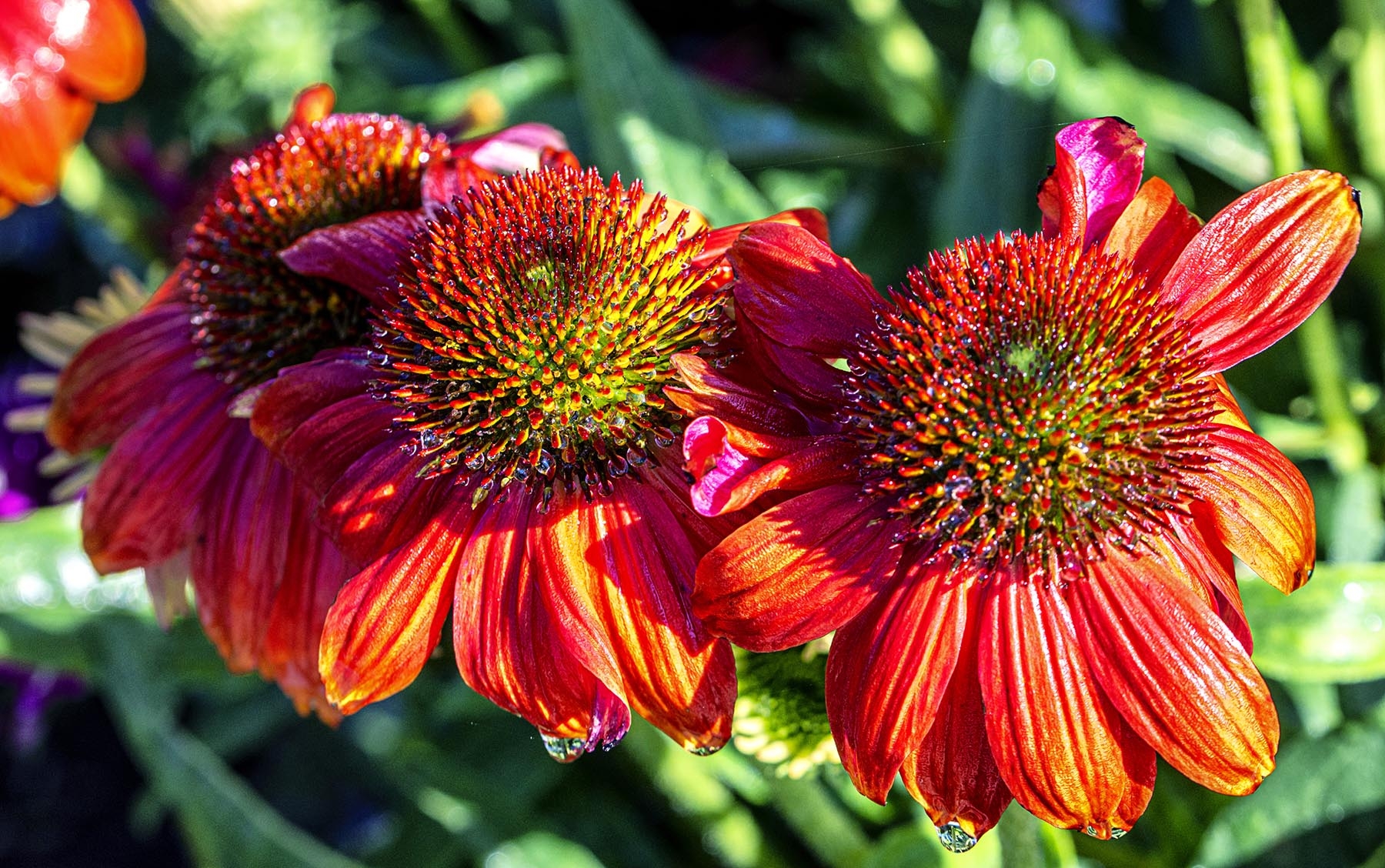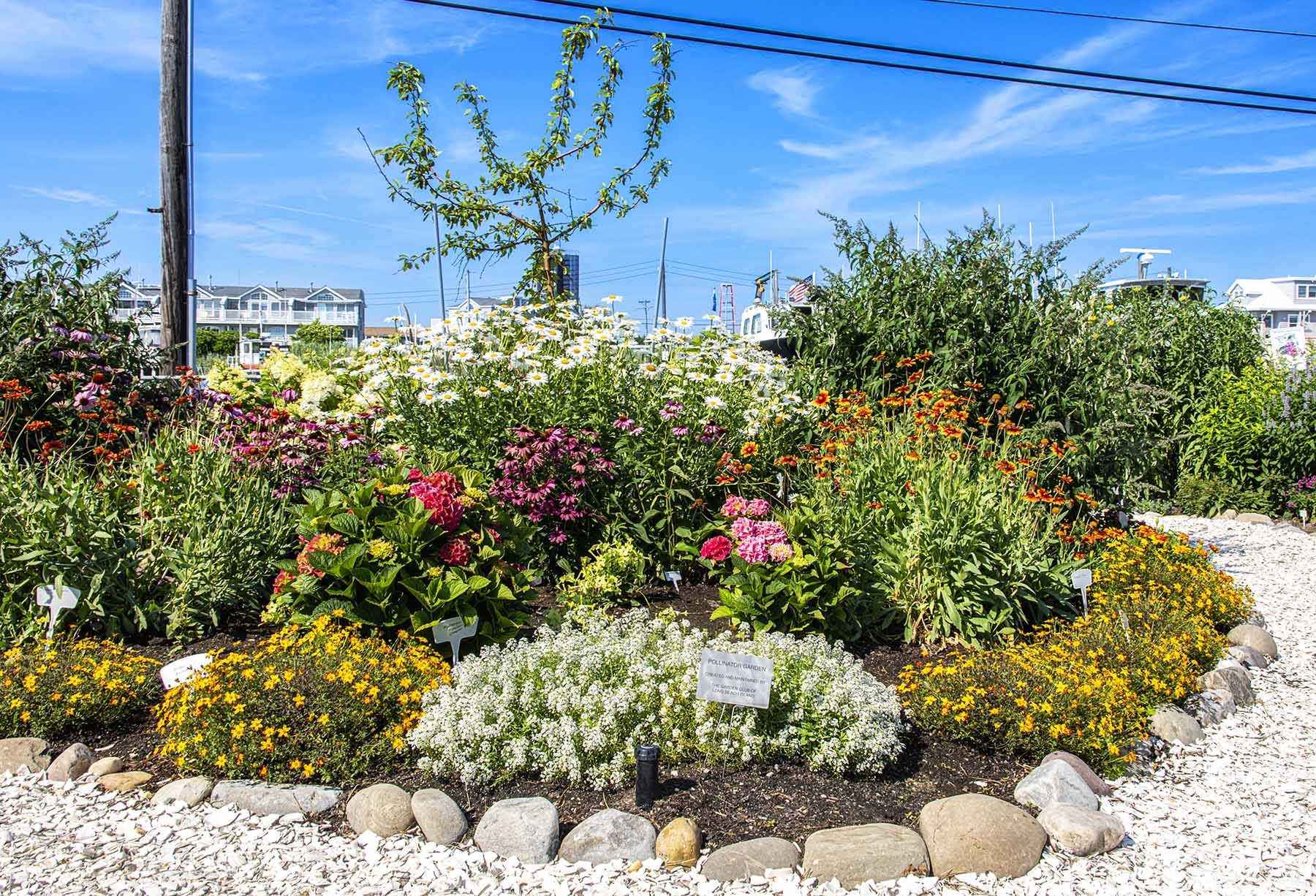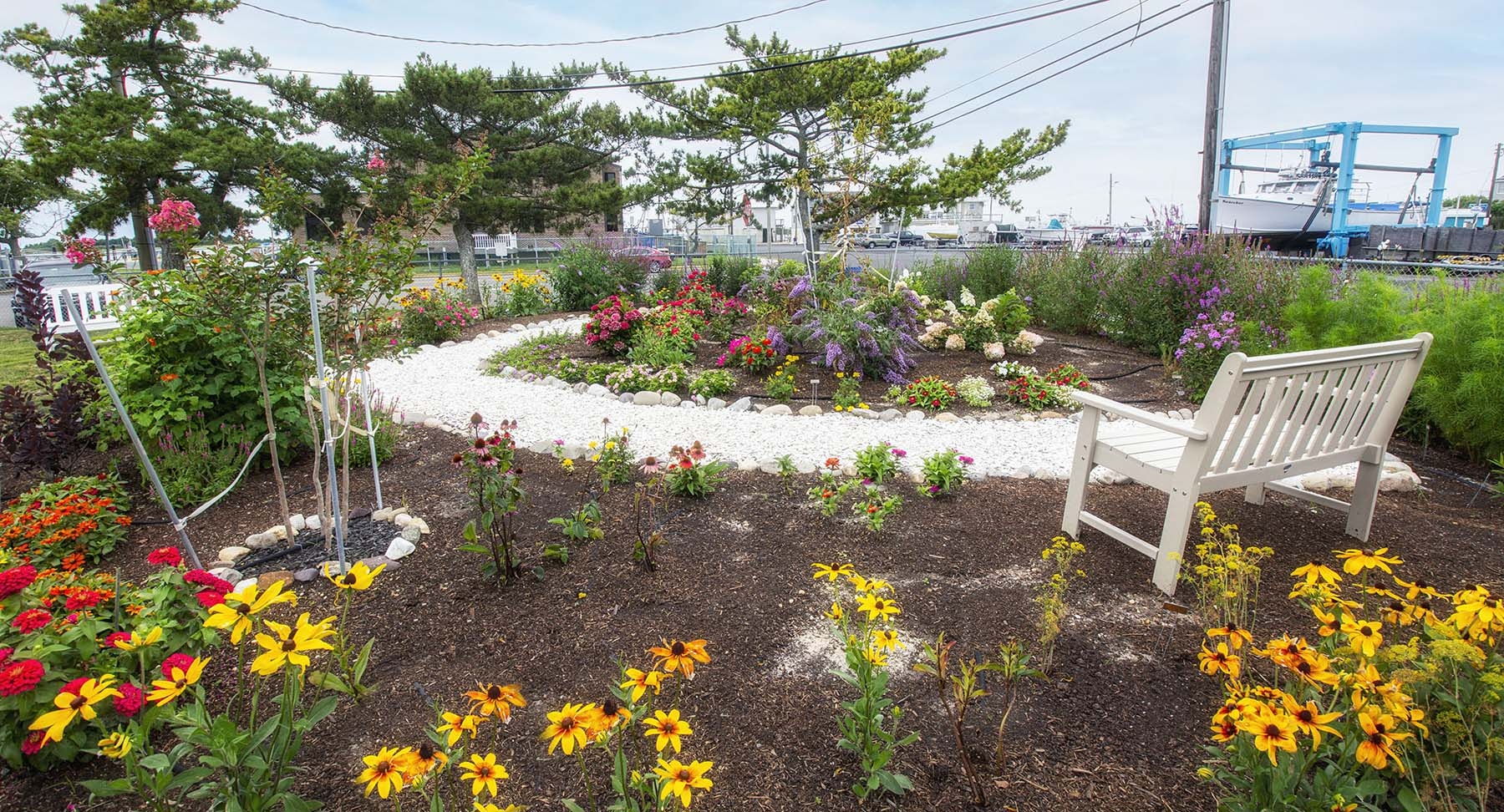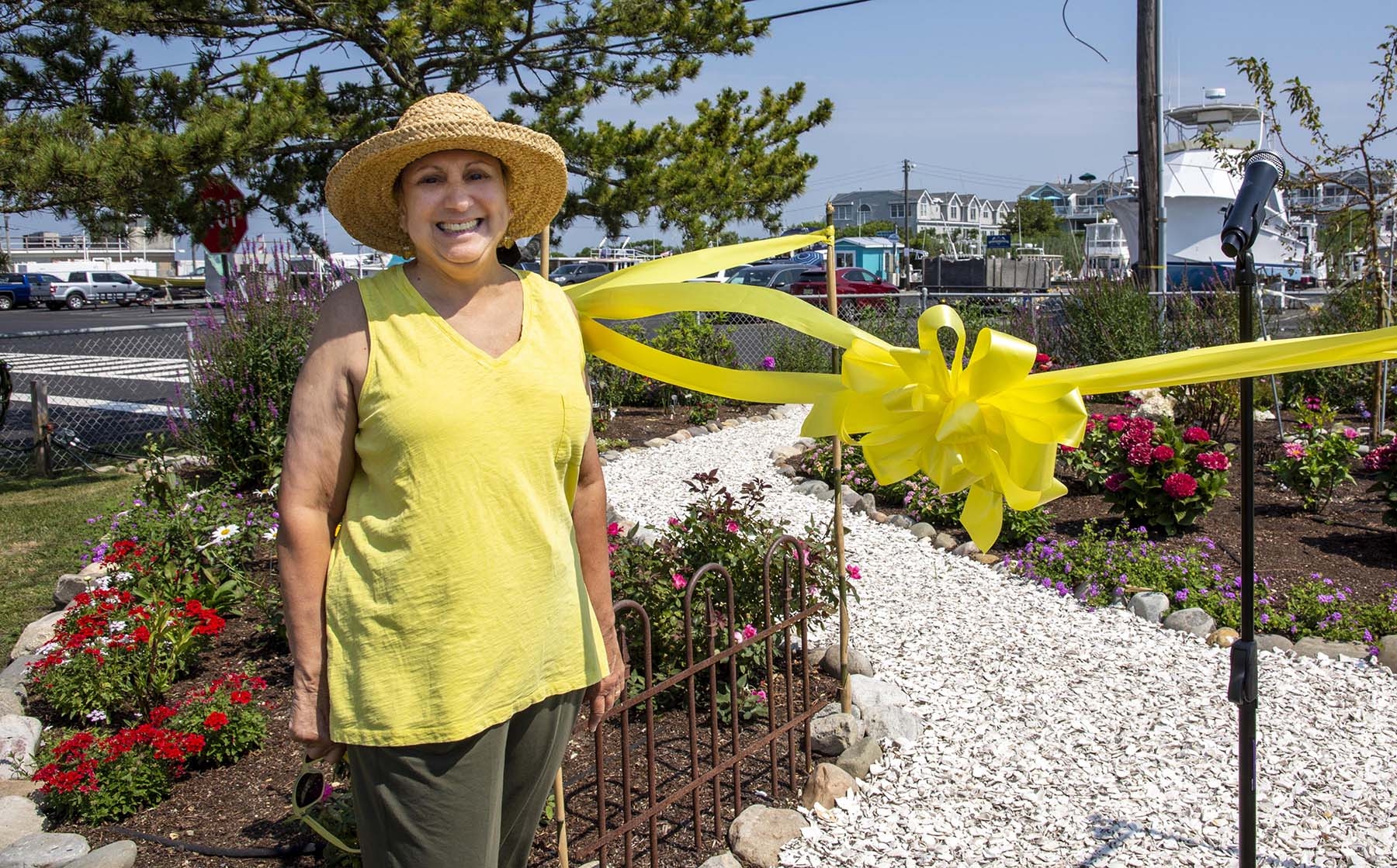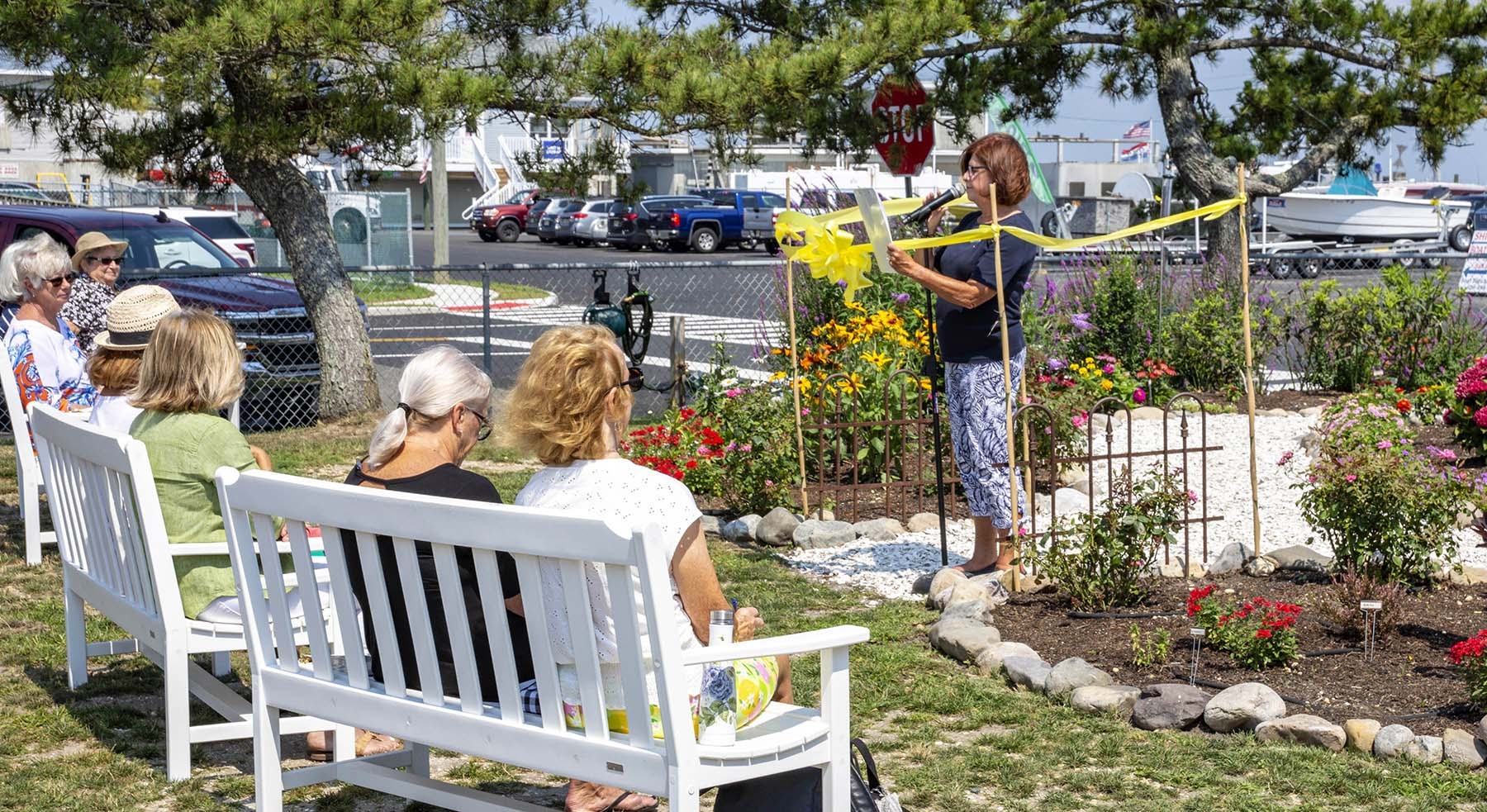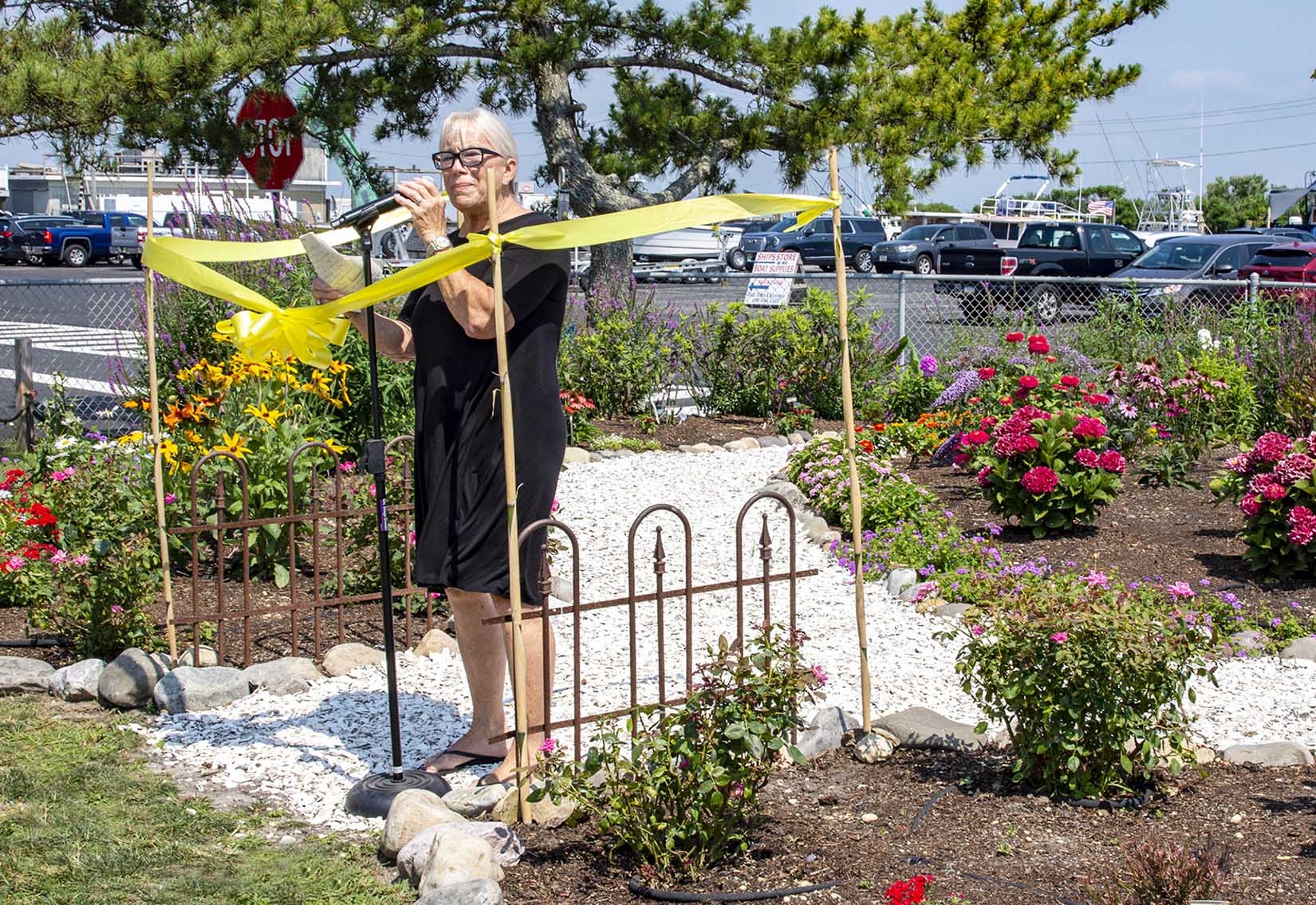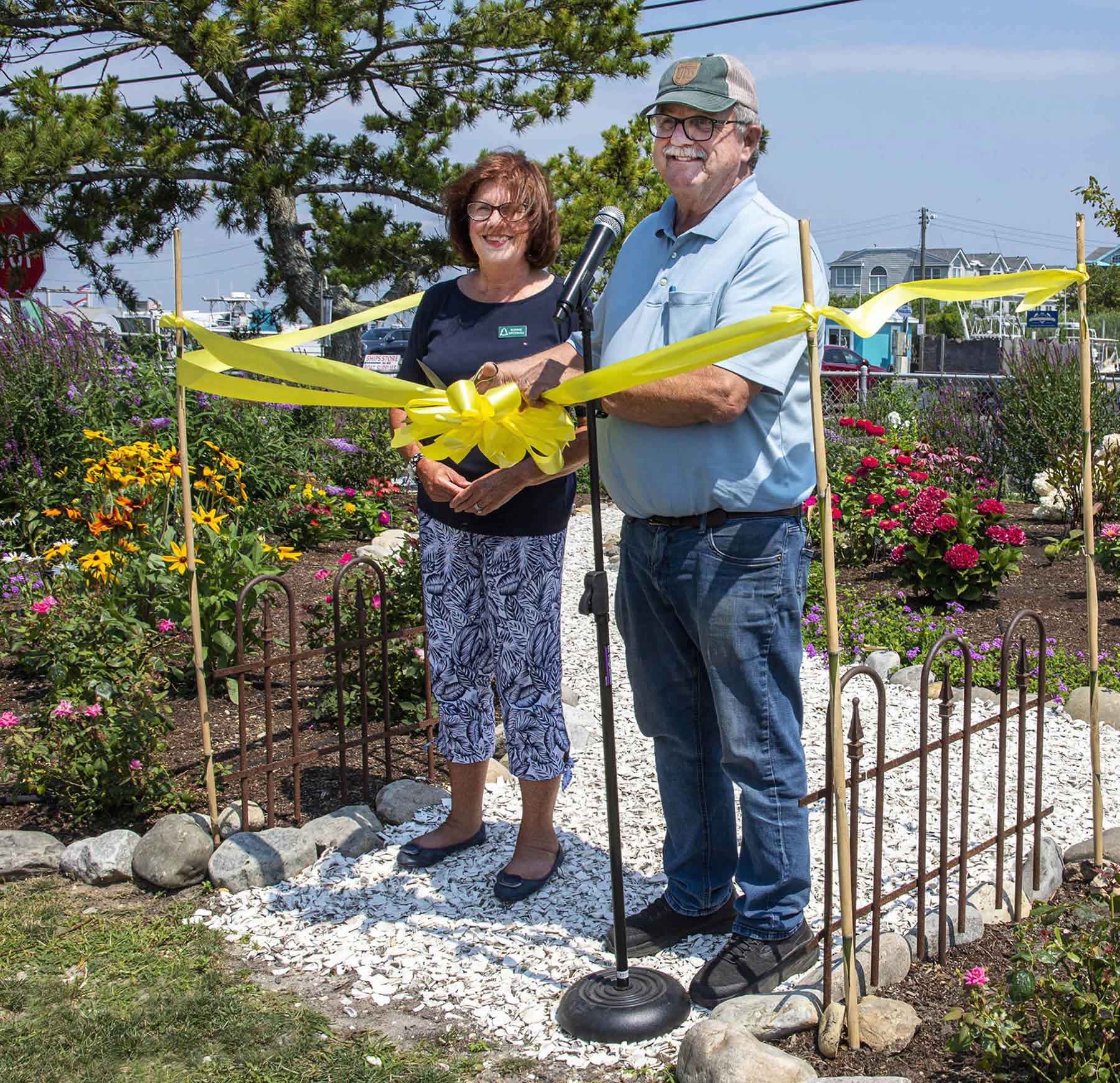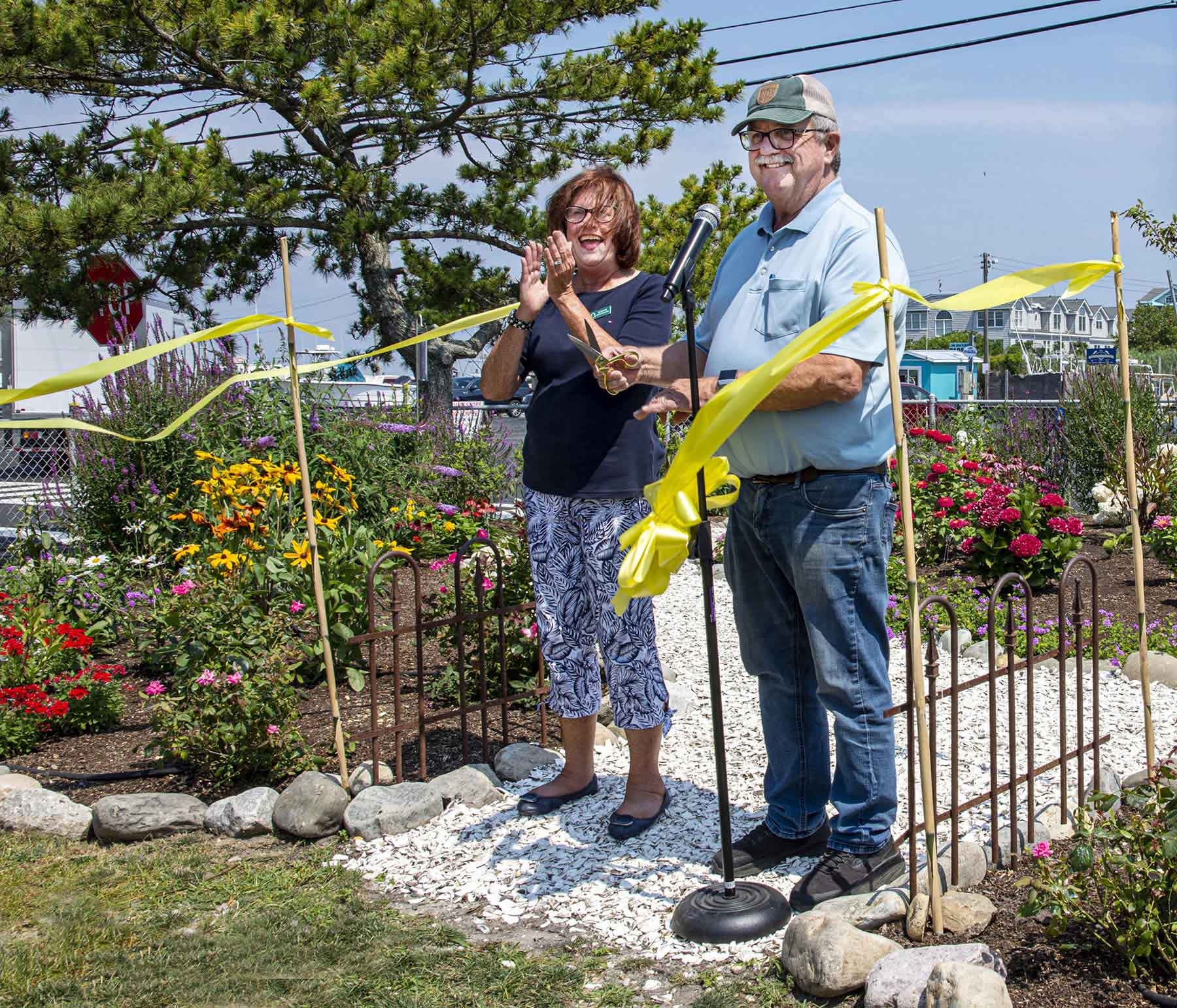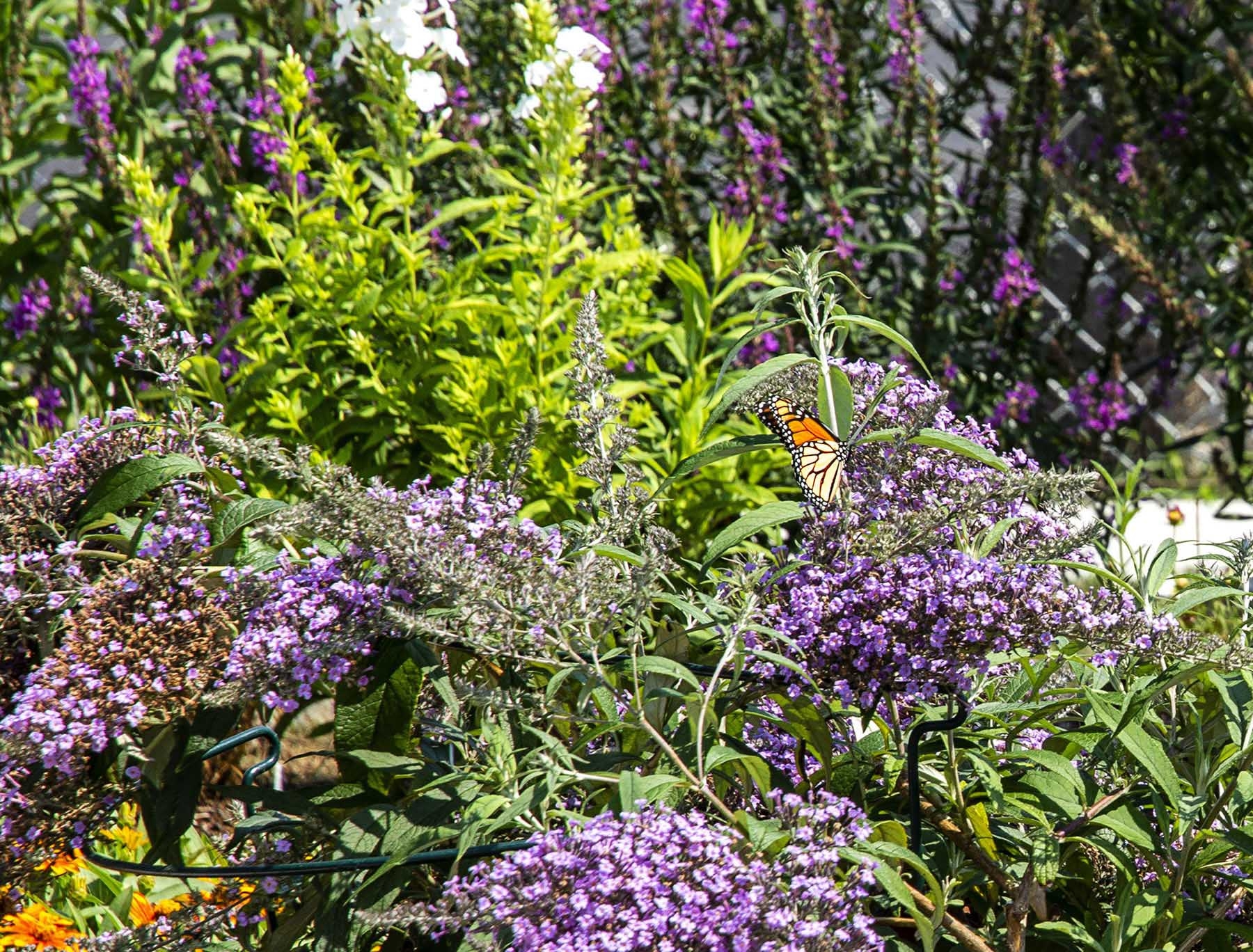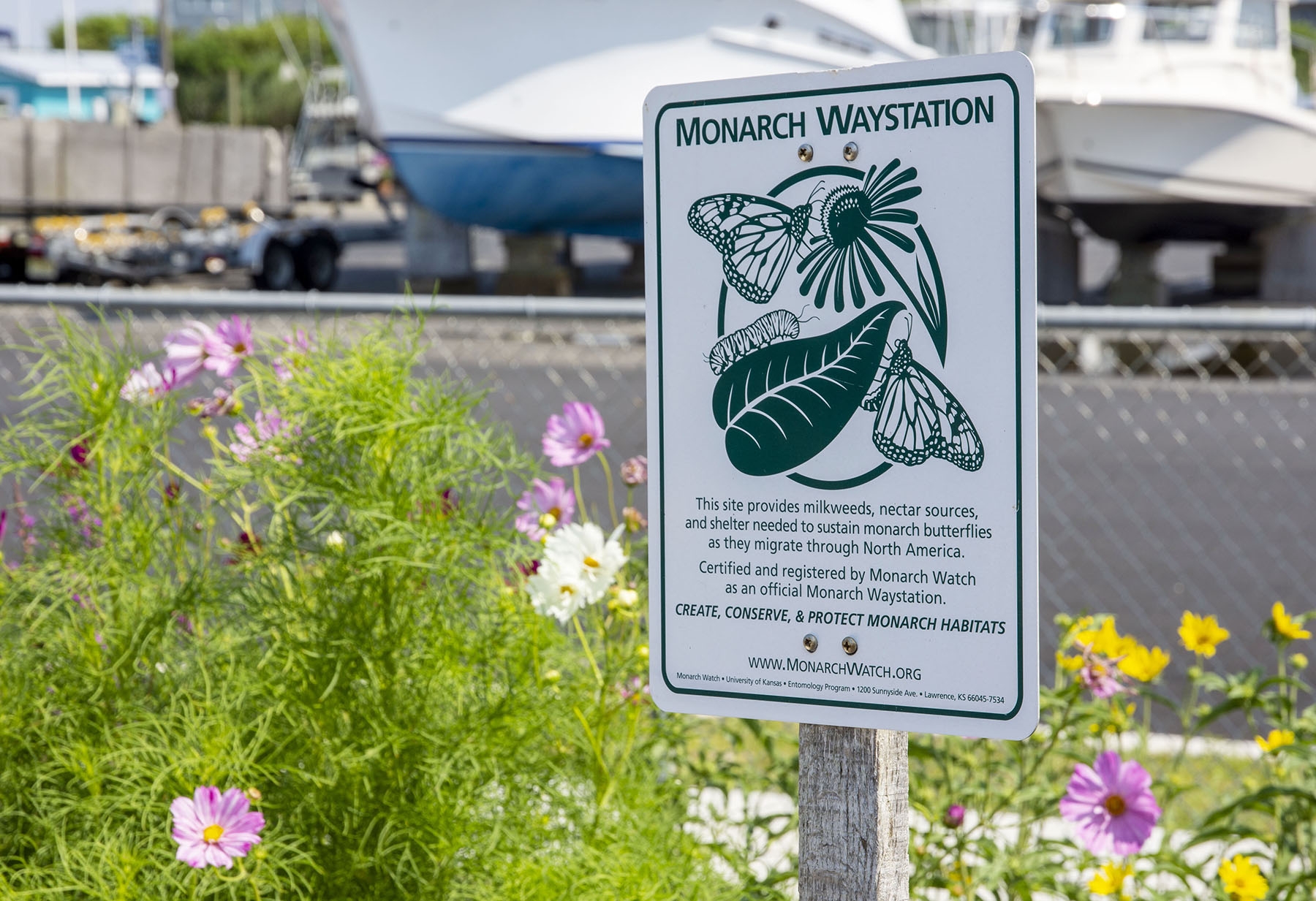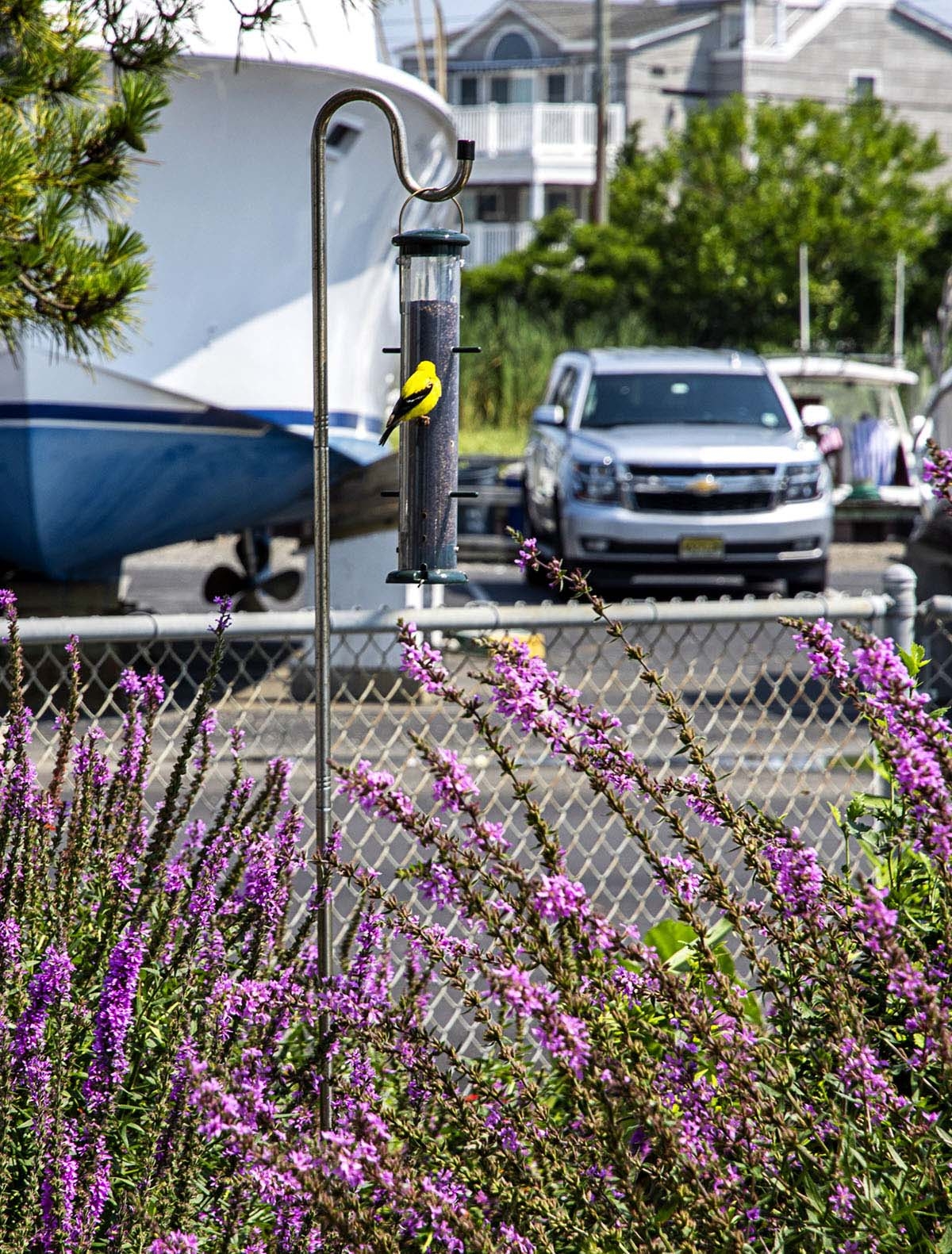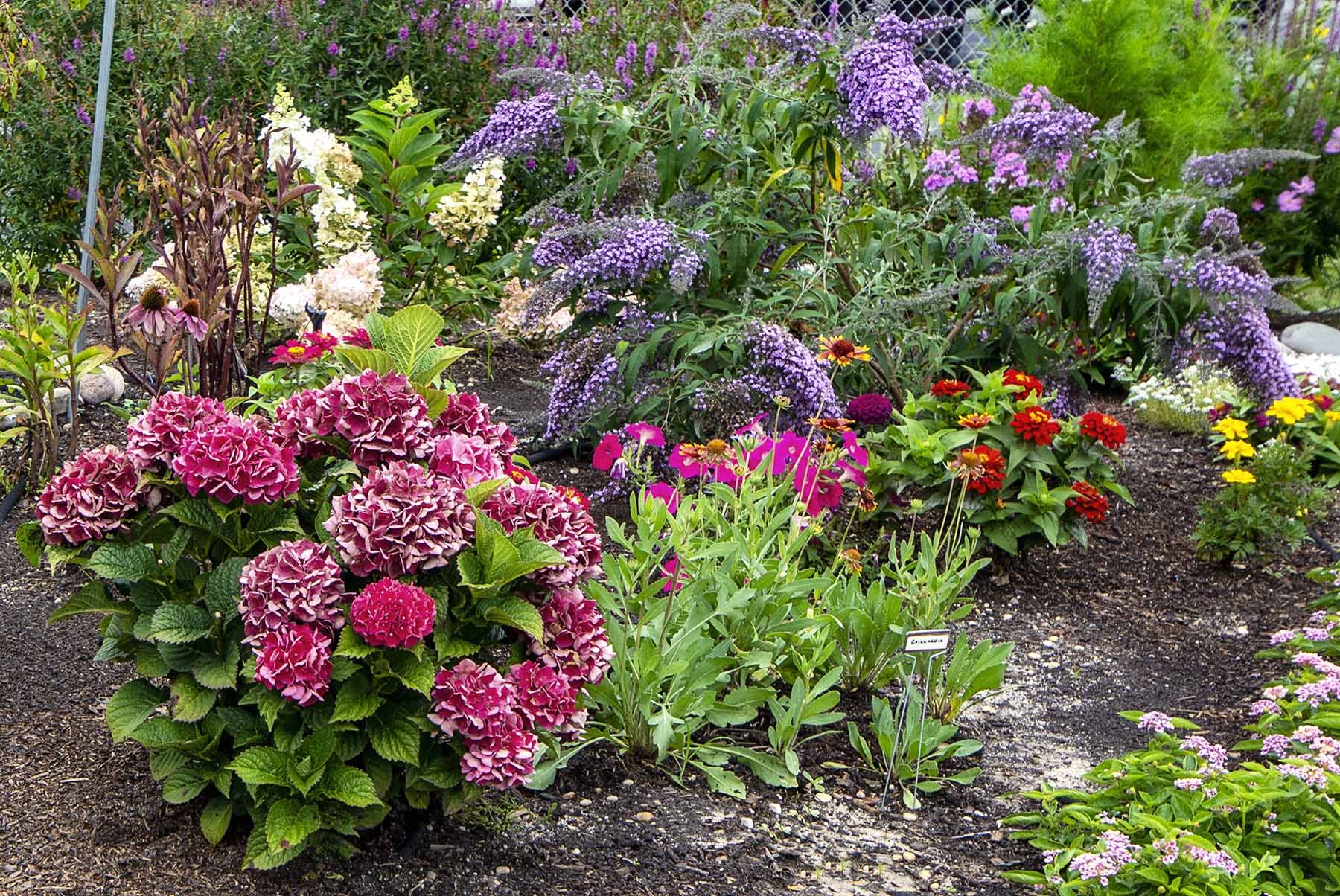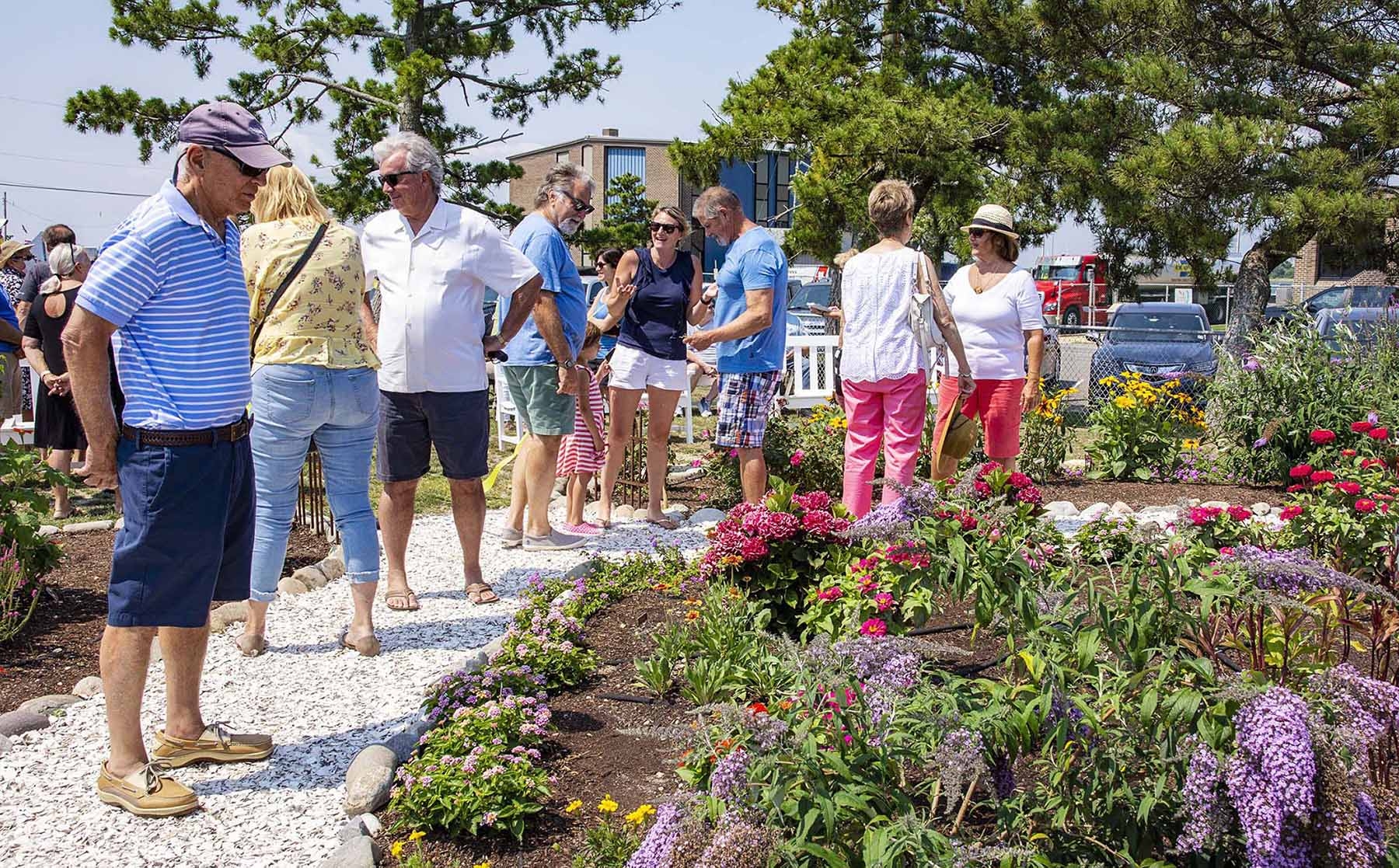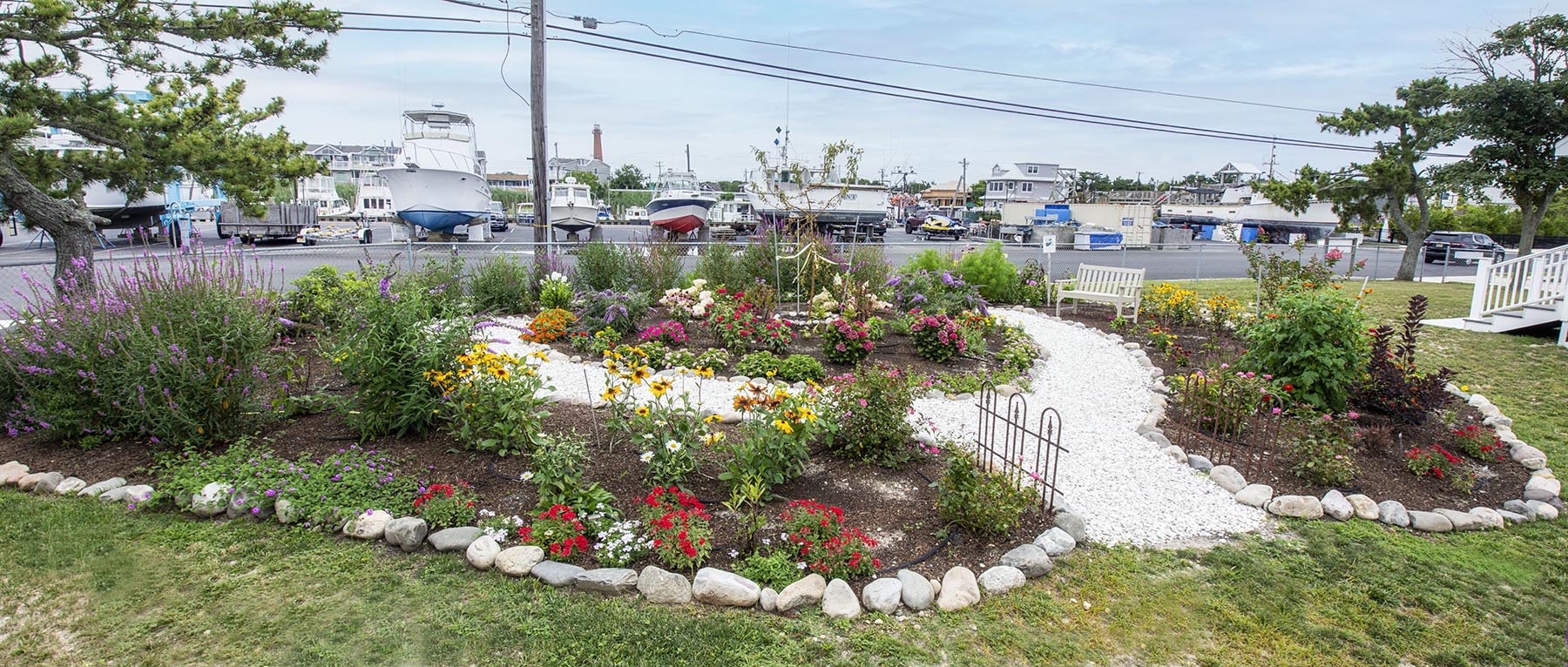Pollinator Garden Committee Chair 2025-2026: Bonnie Brodman
The purpose of the pollinator garden committee is to provide a habitat for pollinators whose populations are decreasing year after year due to habitat loss. Our goal is to fill the garden with the food they need to sustain themselves. We also hope to be an educational resource for those interested in this problem. In addition, we are endeavoring to create a place of peaceful beauty for people to enjoy. Spring through Fall the committee meets every Tuesday at 9 AM to maintain the garden. We welcome new members.
Summertime Pollinator Haven! July 2025
Photos by Jeannette Michelson (click on images to enlarge)
Fall Arrives! 2024
Photos by Richard Brodman, Lois Mullen & Jeannette Michelson (click on images to enlarge)
Pollinator Garden! Fall 2023
Photos by Bonnie Brodman & Lois Mullen (click on images to enlarge)
Pollinator Garden Cleanup October 2022
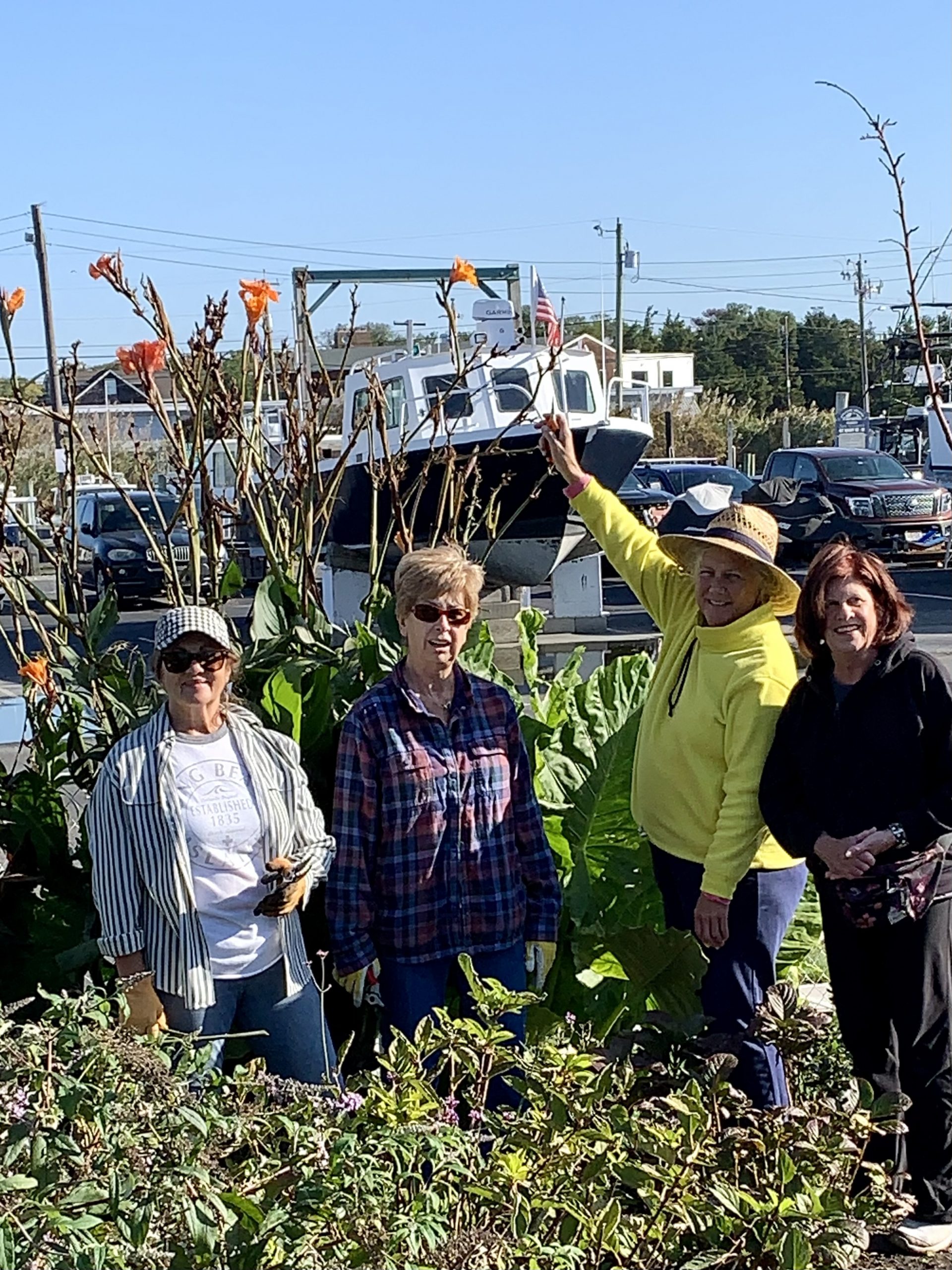
The Pollinator Garden committee is preparing the garden for the winter. The cleanup included cutting down the orange canna that grew over 12 feet this summer!
Pollinator Garden at “One Year” July 2022
On July 19, 2022 the Pollinator Garden Committee, chaired by Bonnie Brodman, celebrated the First Birthday of the garden with cake. As you can see from the photos below, the garden has come a long way since its inception in February 2021. During this past year the garden has thrived and matured into its present lush form. Please click on gallery photos to enlarge,
Photos: Jeannette Michelson (click on images to enlarge)
Pollinator Garden Opening July 2021
“The caterpillar does all the work but the butterfly gets all the publicity.”- George Carlin
Photos: Jeannette Michelson (click on images to enlarge)
On July 28,2021, the Garden Club held a ribbon cutting ceremony to mark the official opening of our new butterfly/pollinator garden at Bay Breeze Park in Barnegat Light. On hand were garden club members, the mayor of Barnegat Light, Kirk Larson, several councilmen, and the president of the Barnegat Light Taxpayers’ Association. Birds and Wildlife committee chair Bonnie Brodman, thanked garden club members and others in the community who donated their time and labor, plants, benches, and monetary gifts to this effort. All were indispensable to the creation of the garden. Michele Farias, president of the Garden Club of Long Beach Island, spoke about how the seed of an idea can, when nurtured, can become a reality. The Garden Club presented Mayor Larsen with a gift of official ribbon cutting scissors. The mayor cut the ribbon and the audience was welcomed into the garden. Click on any photo to enlarge and begin a slide show.
Pollinators Keep the World Afloat
Pollination is the way that flowering plants reproduce. Pollen from the male part of a flower (anther) needs to reach the female part of the flower (stigma) to produce seeds. 75%-95% of flowering plants need help with the process of getting the pollen where it needs to go. Pollinators provide this assistance.
A pollinator is a bee, butterfly, bird, ladybug, dragonfly, or any other creature that visits the inside of a flower. While moving around inside the flower, their bodies collect pollen. The pollen from their bodies is often transferred to the stigma of the flower as they continue to move around, thus achieving pollination.
It is estimated that 1 out of every 3 bites of human food depend on pollinators. Fruits, melons, nuts, vegetables, berries, garlic, chocolate, coffee, peppermint, tea, and vanilla all depend on pollinators to reproduce, for example.
Pollinators all over the world are in trouble. Their populations are declining year over year everywhere. This is primarily due to loss of habitat caused by human activity. Loss of habitat occurs partly from building homes, roads, and commercial buildings as well as mining, all of which eliminate the wildflowers pollinators feed on. Wide use of herbicides, especially by corporate farms over-spraying their Round Up ready crops from helicopters, has decimated the food sources of pollinators as well. Pesticides kill pollinators. Climate change has disrupted some migration patterns and timing.
The Garden Club of Long Beach Island has created this pollinator garden as a habitat for pollinators. Every plant in the garden is listed as a preferred plant for bees, butterflies, and/or hummingbirds. The garden includes swamp milkweed, butterfly weed, parsley and dill for Monarch and Swallowtail caterpillars. Nectar flowers for adult pollinators include black Eyed Susan, Shasta daisy, coneflower, pentas, Rose of Sharon, butterfly bush, verbena, phlox, anise hyssop, zinnia, lantana, goldenrod, hydrangea, knock out rose, Mexican sunflower, perennial sunflower, crape myrtle, crabapple and smoke bush and canna lilies.
Echinacea/Coneflower News September 2021
A recent article in the New York Times cautioned against straying too far from the traditional purple coneflower (echinacea purpura) if you’re interested in attracting pollinators. New cultivars in shades of orange, yellow, and red do not produce as much pollen or nectar or seeds as the purple coneflowers do. They are visited by pollinators less often, too. The variety with the least value of all to pollinators is the double coneflower. It has the same problems of less pollen, nectar, and seeds as the other cultivars, but in addition, it lacks the spiny, conical center which gives the flower its name. Instead, it has a fluffy pad like center which is harder for pollinators to navigate to get to either pollen or nectar or seeds. These are still beautiful flowers which do no harm to pollinators, but if your purpose is to help pollinators, they are probably the wrong choice for your garden.
Pollinator Plants for Southern New Jersey
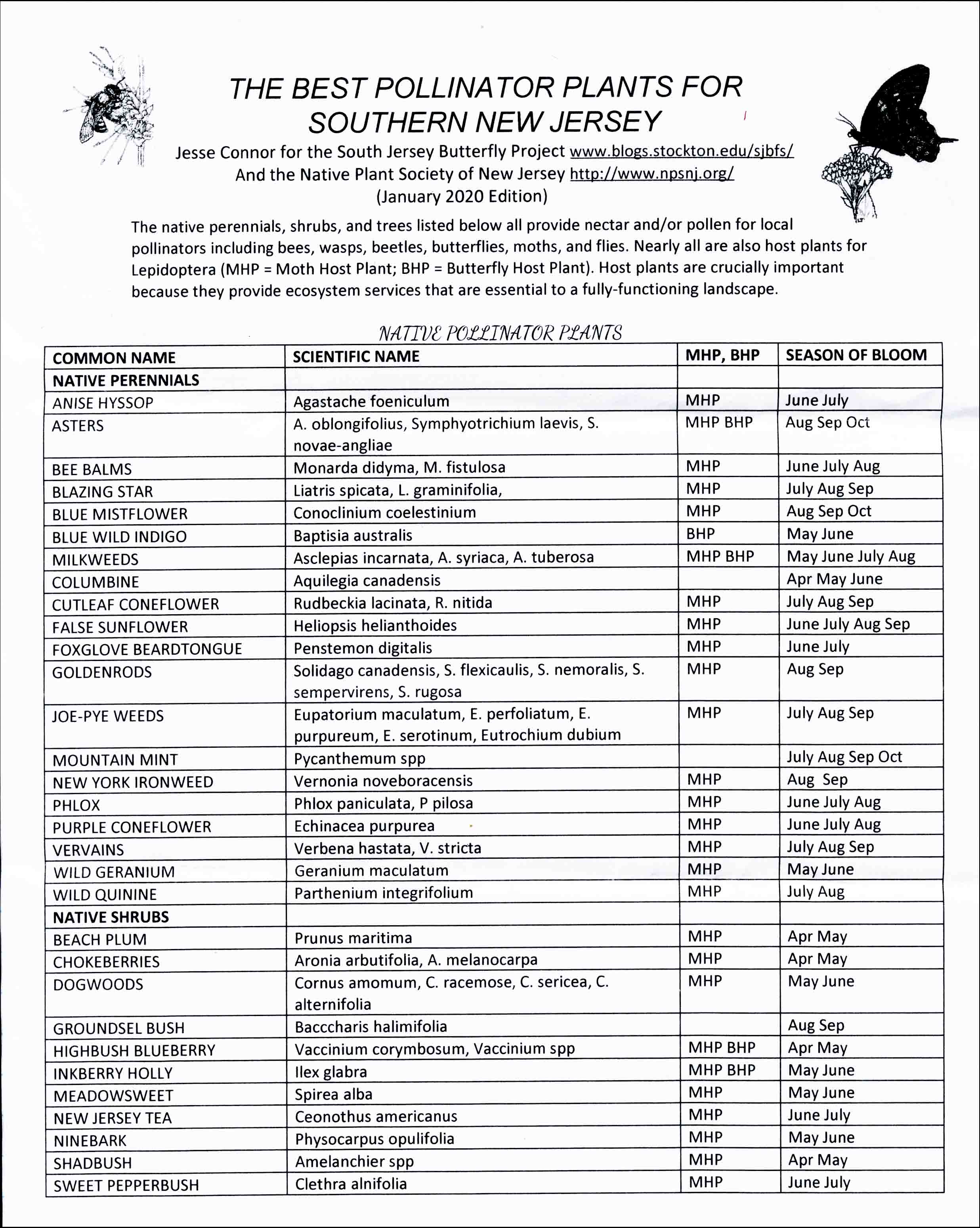
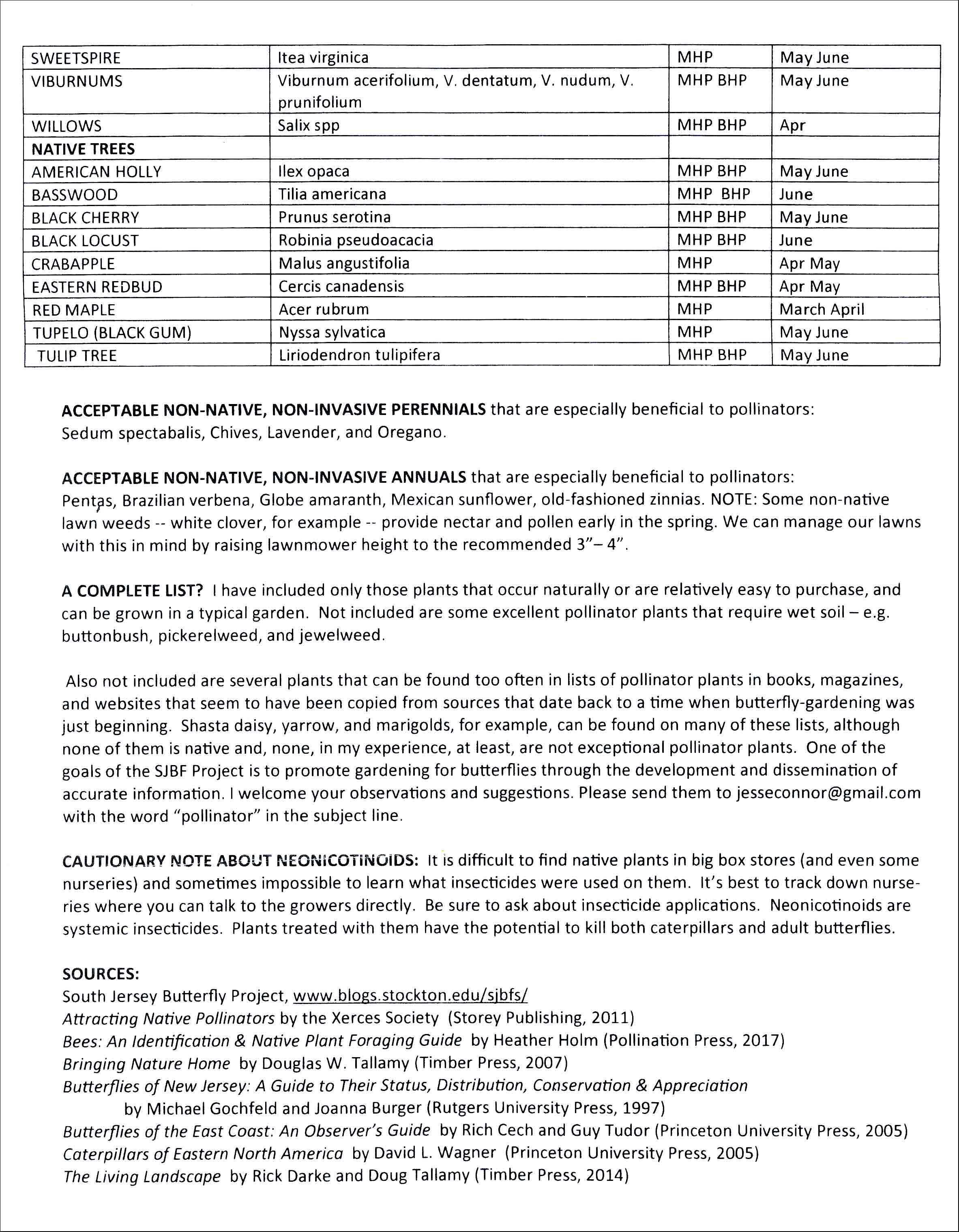
Unfortunately many nurseries and some big box stores sell invasive species. However, there are also nurseries that provide native plants. Eight Ocean County nurseries providing native plants listed:
Cicconi Farms, 1005 Farmingdale Rd., Jackson, 732-363-1420
Hammett’s Landscaping & Garden Center, 425 U.S. Hwy 9, Forked River 609-971-0453
Hoch’s Landscaping & Garden Center, 229 S. Main St., Barnegat 609-361-4310
Rare Find Nursery, 957 Patterson Rd., Jackson 732 833-0613
and 4 in Atlantic County:
Atlantic Nursery, 3072 Cologne Ave., May’s Landing 609-965-2553
Earth First Native Nursery, Egg Harbor Township 609-287-5090
Galloway Nursery, 1121 Alice St., South Egg Harbor 609-965-2071
Summersweet Native Plants, Mays Landing (Open by appointment only. Call or e-mail Joseph at [email protected] 609-287-0586.





